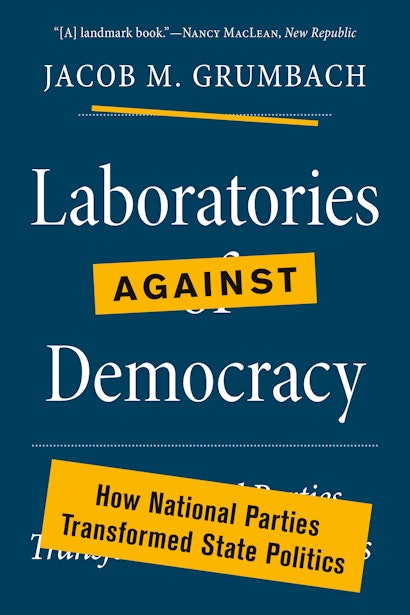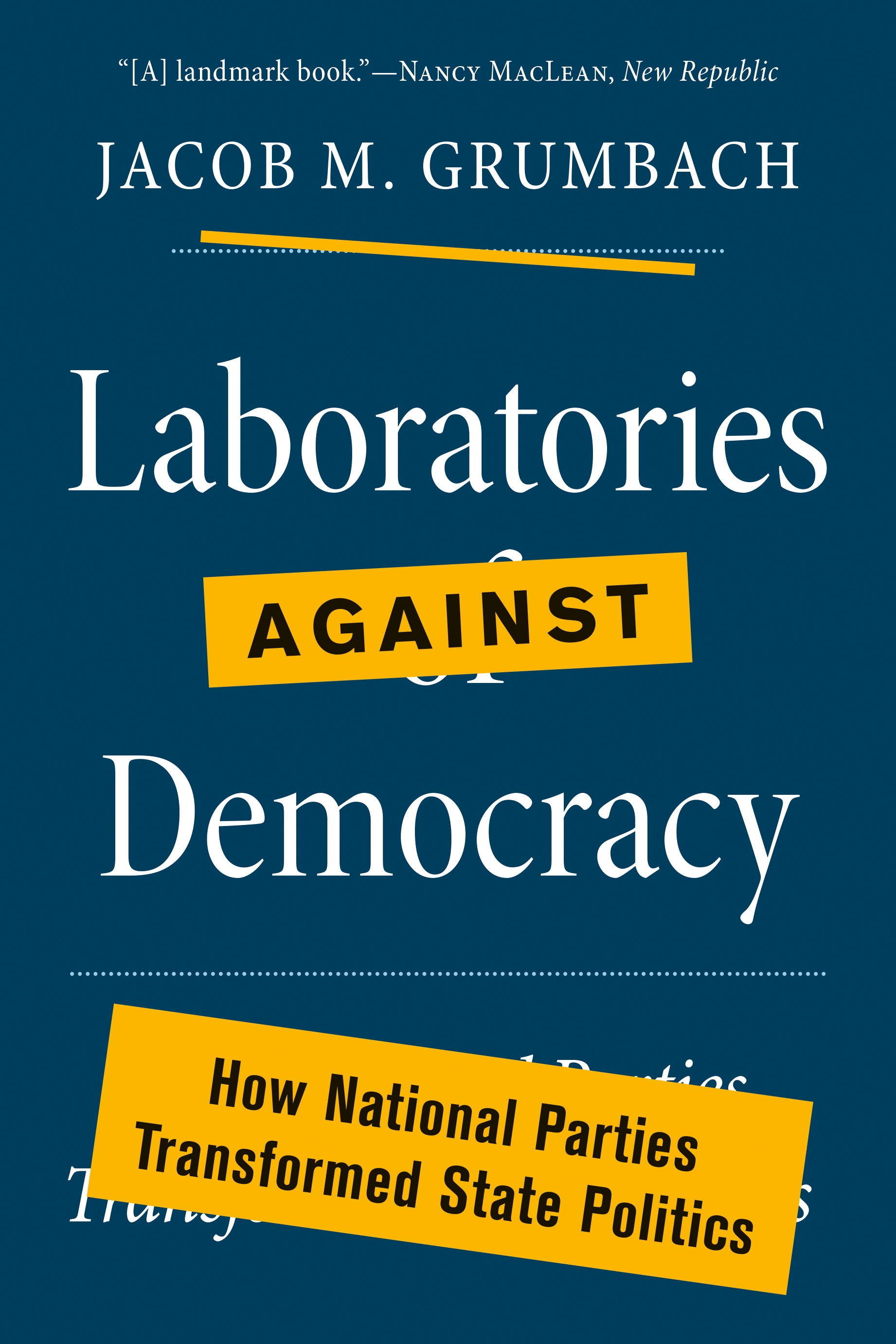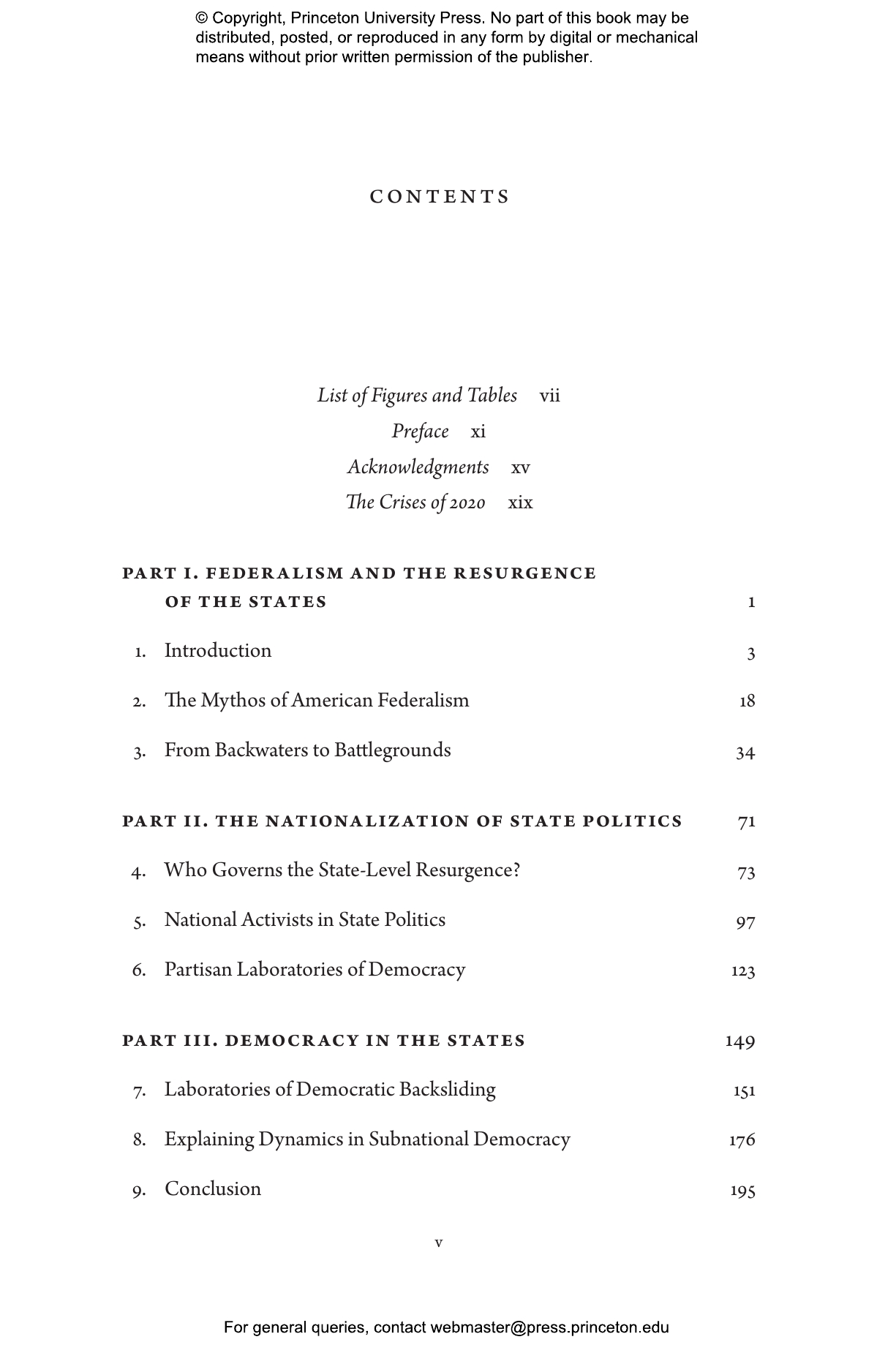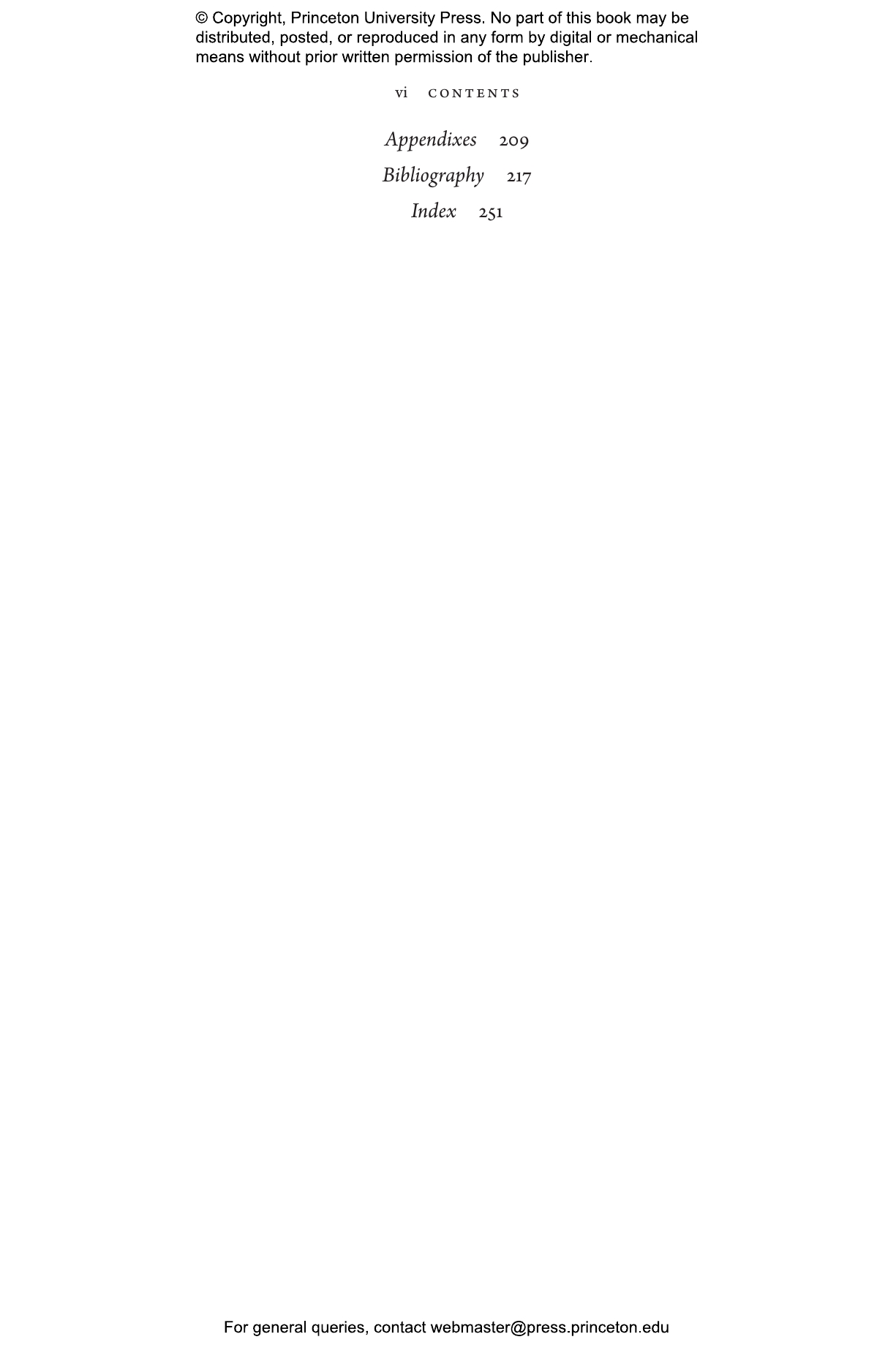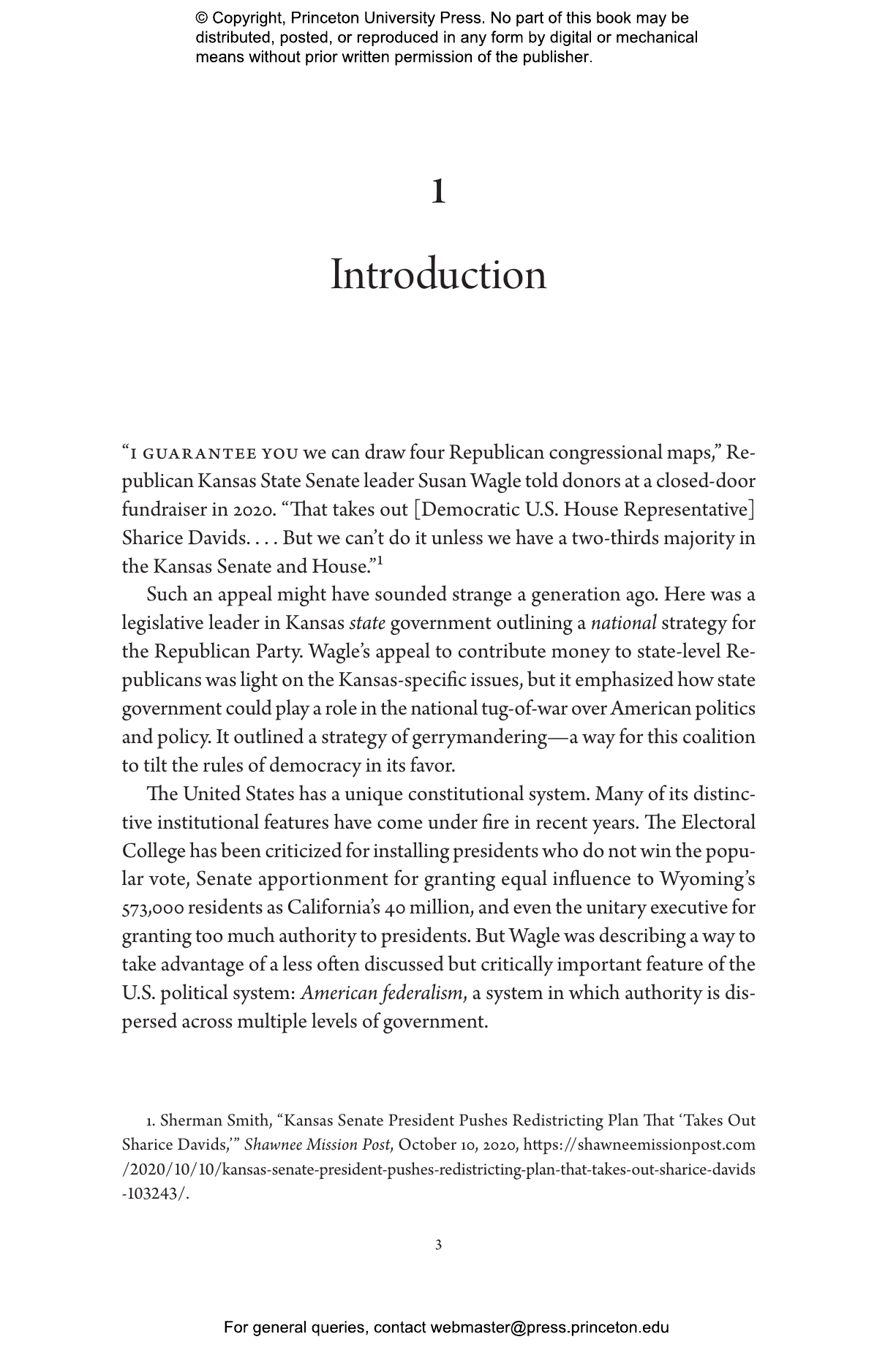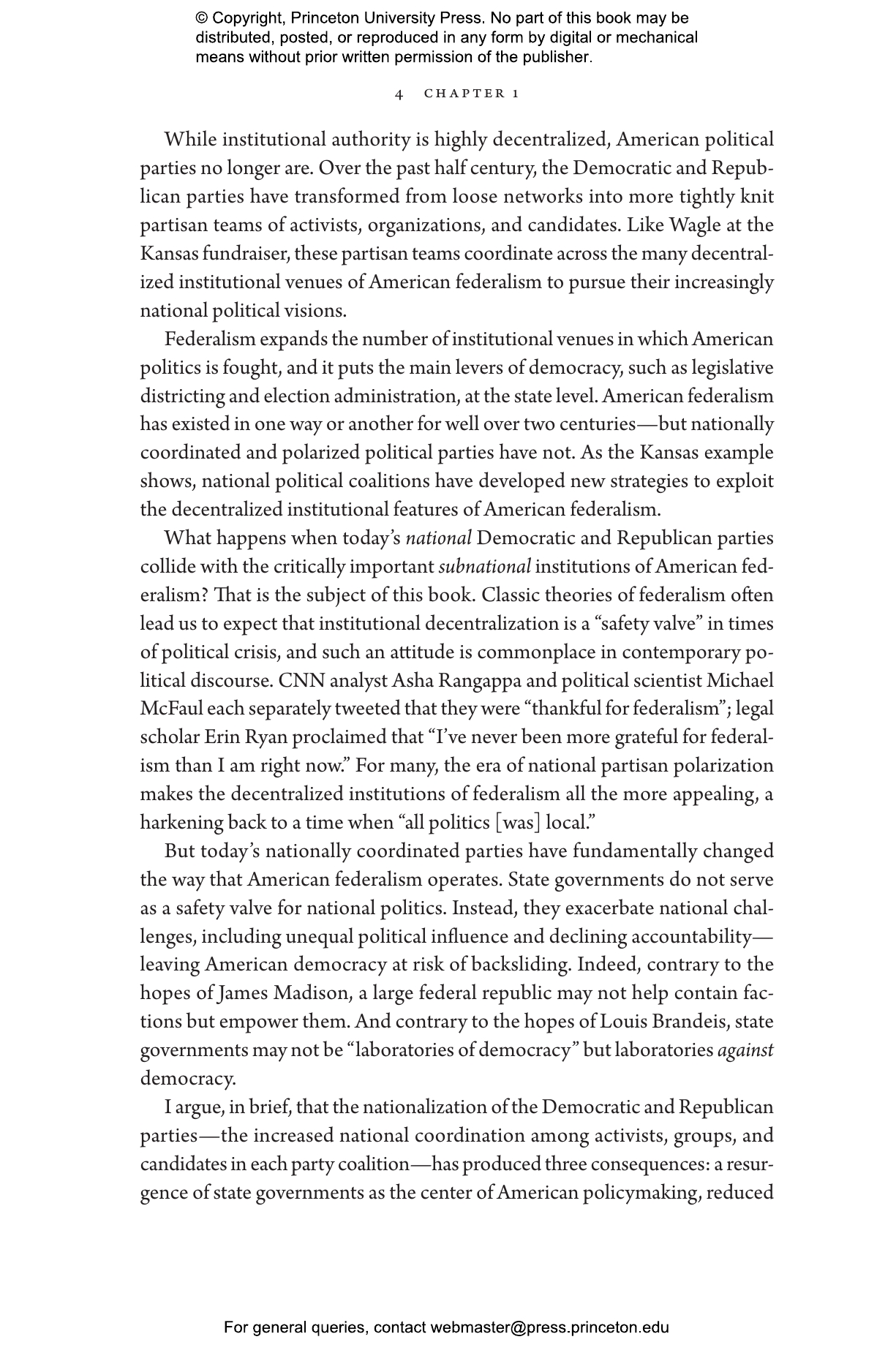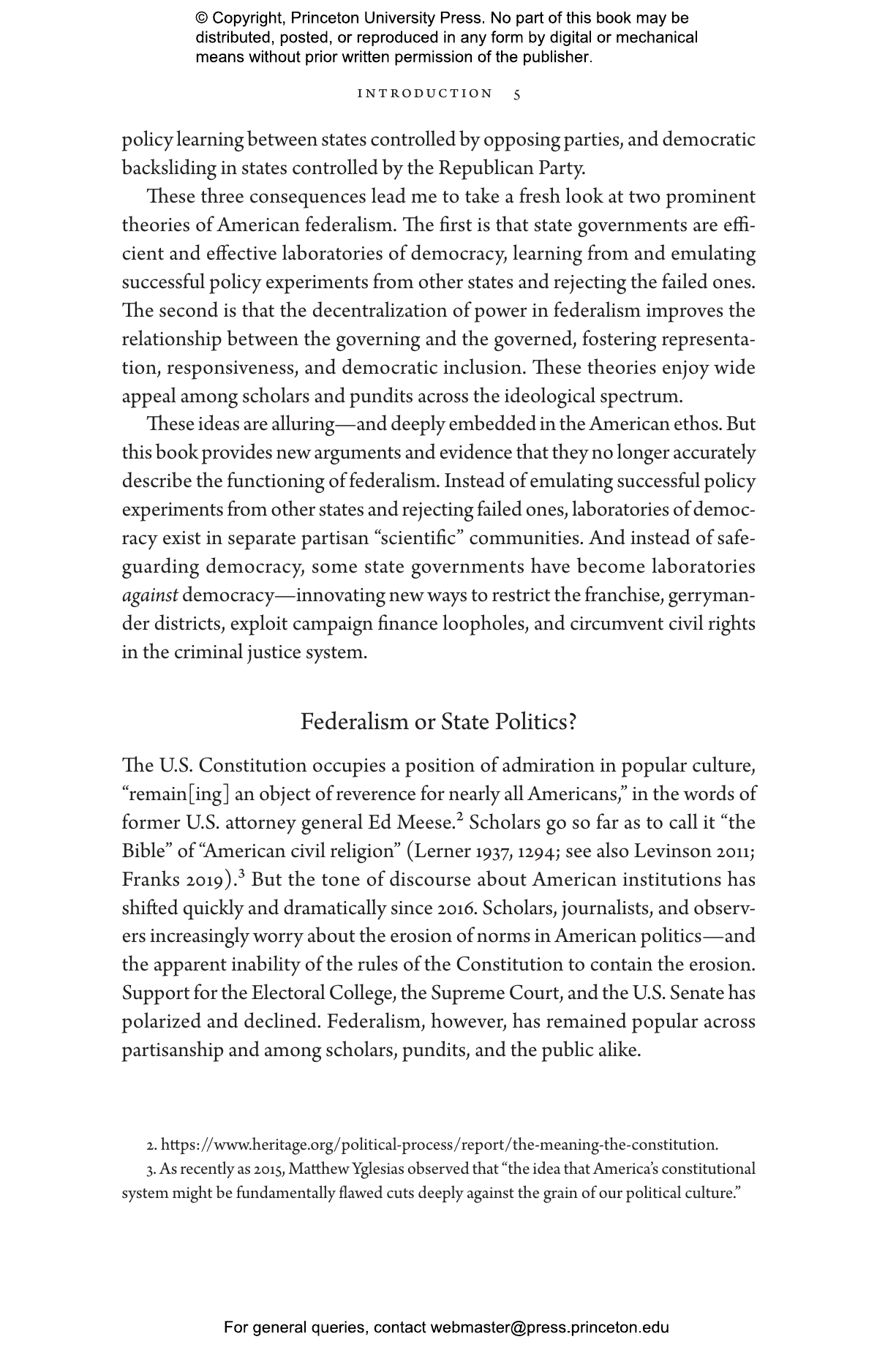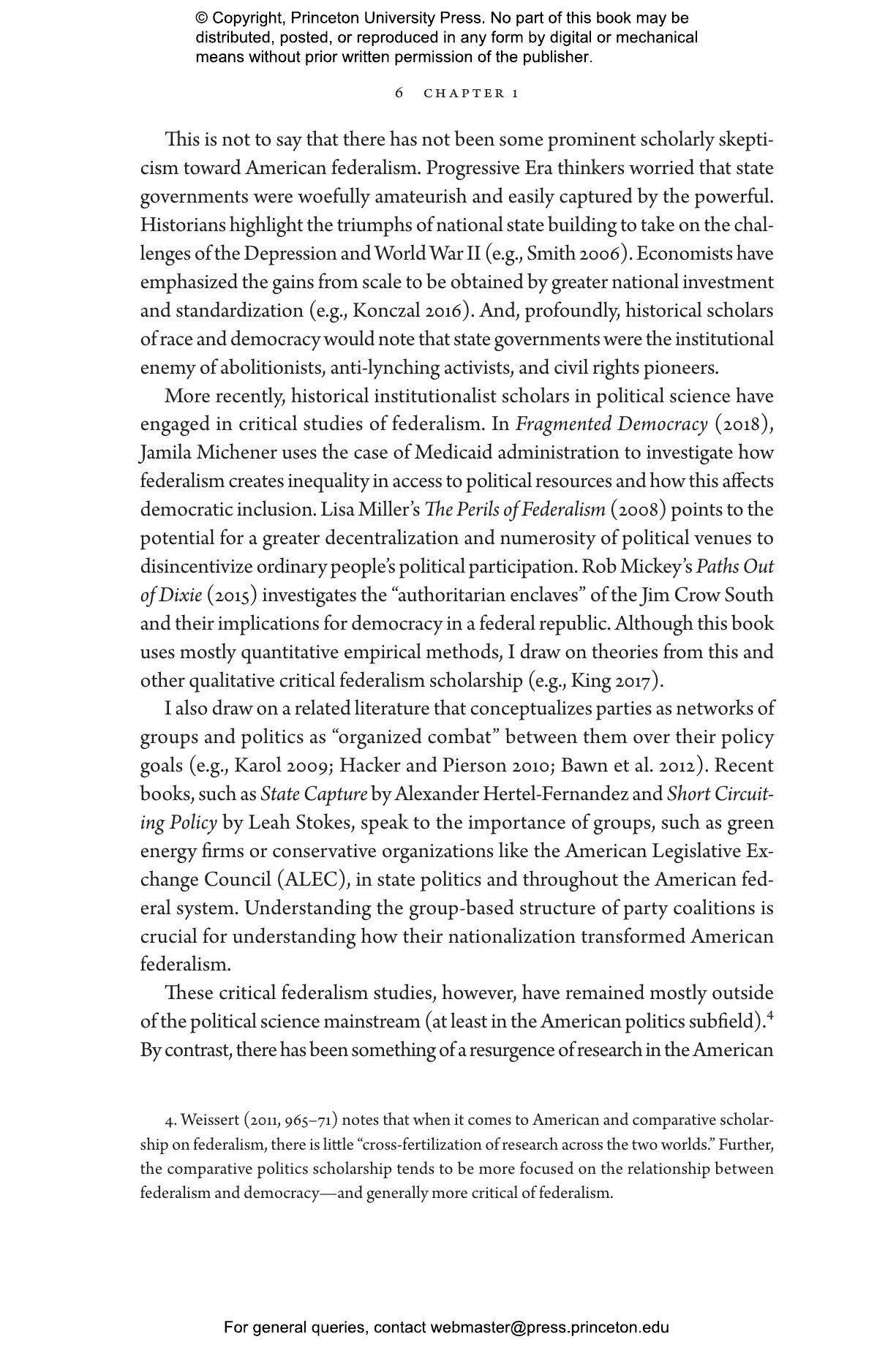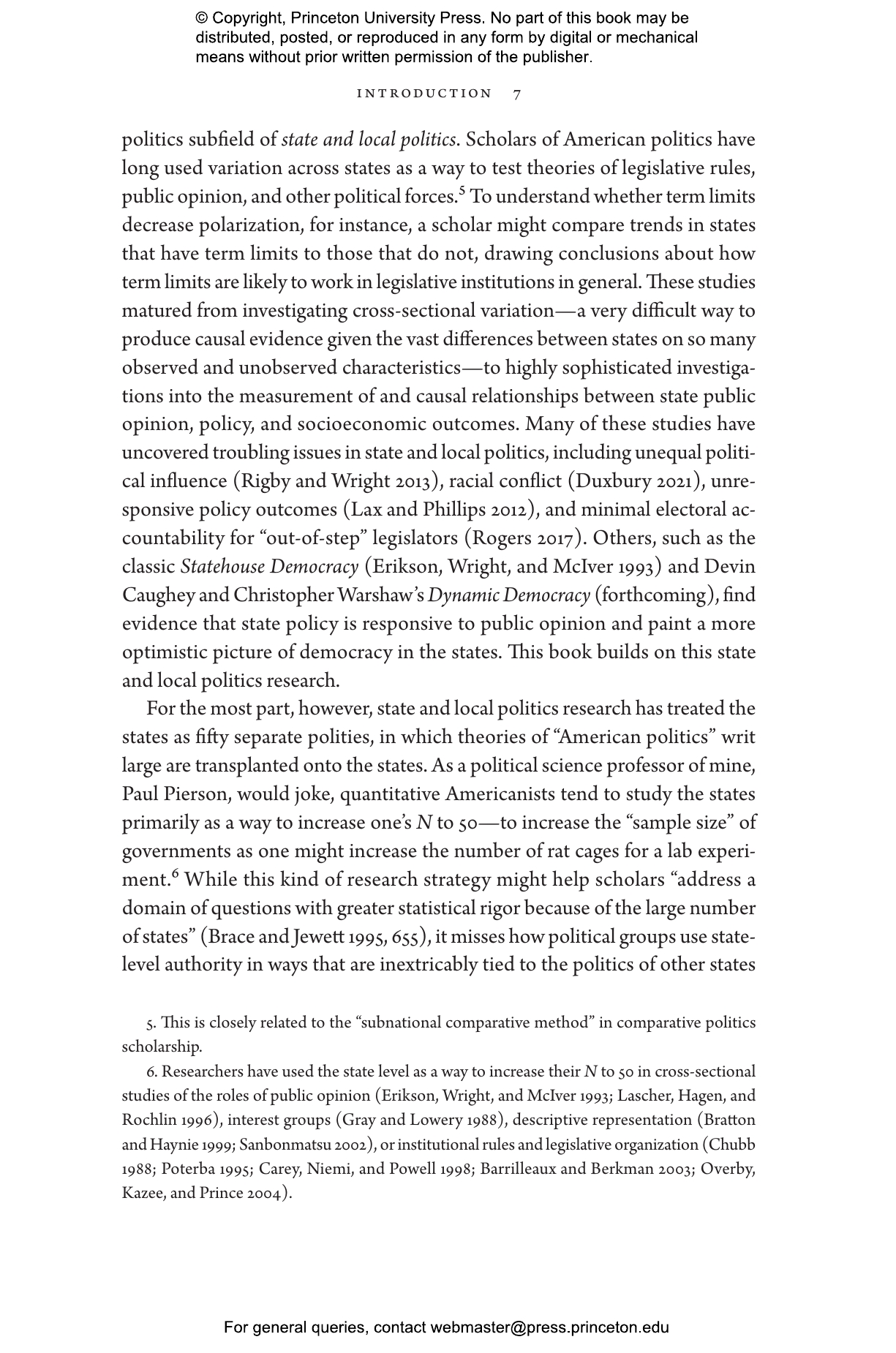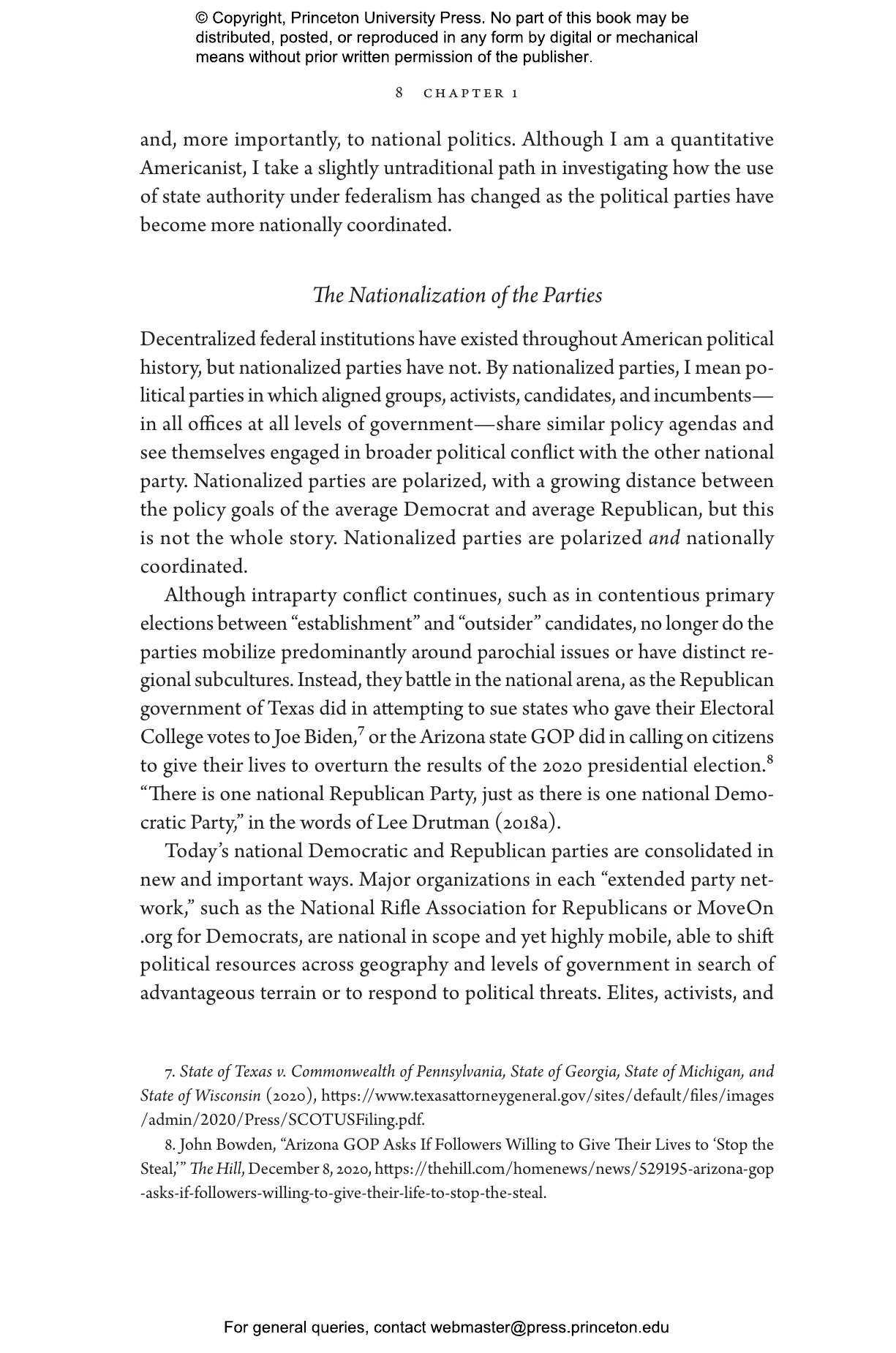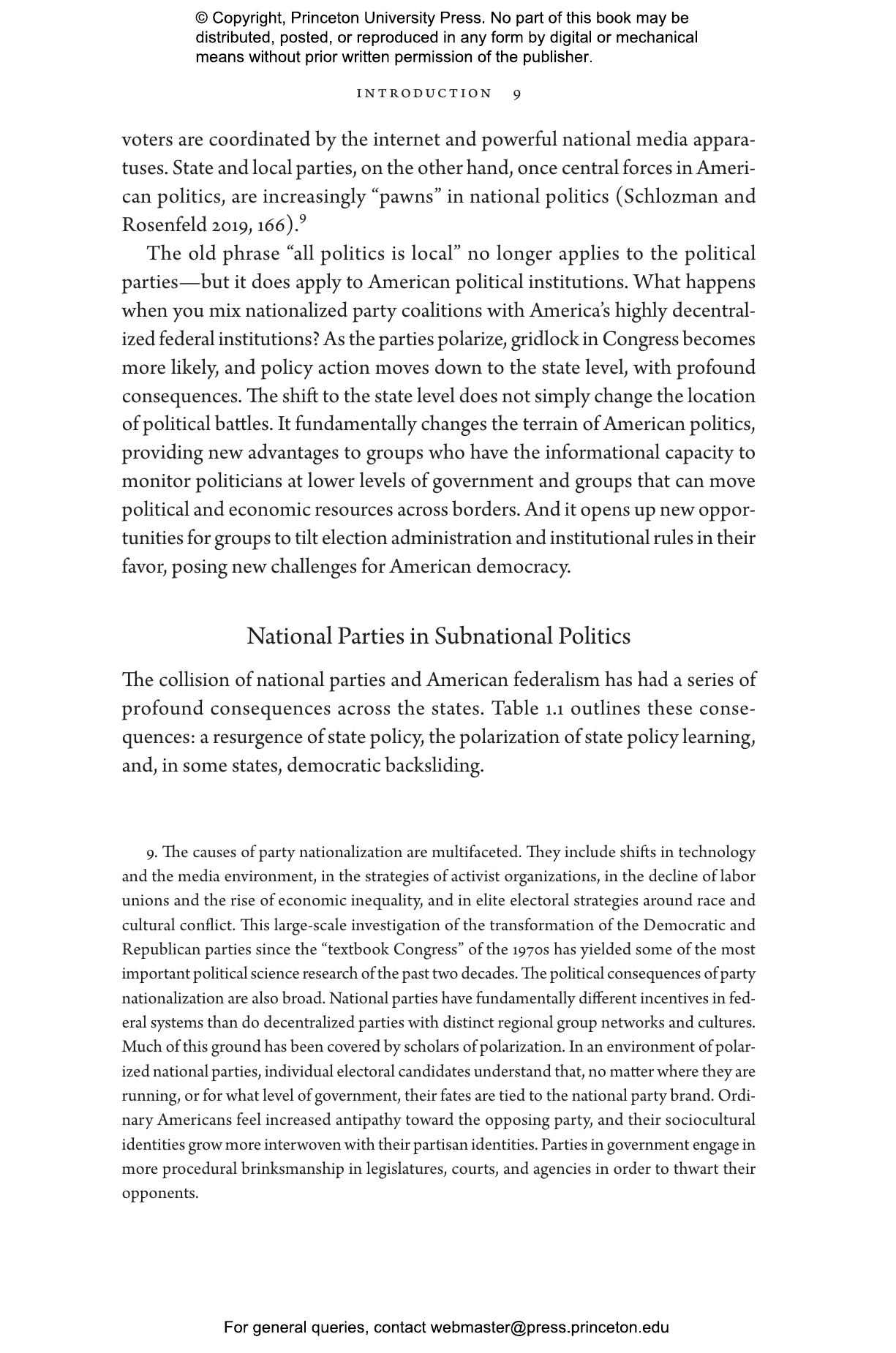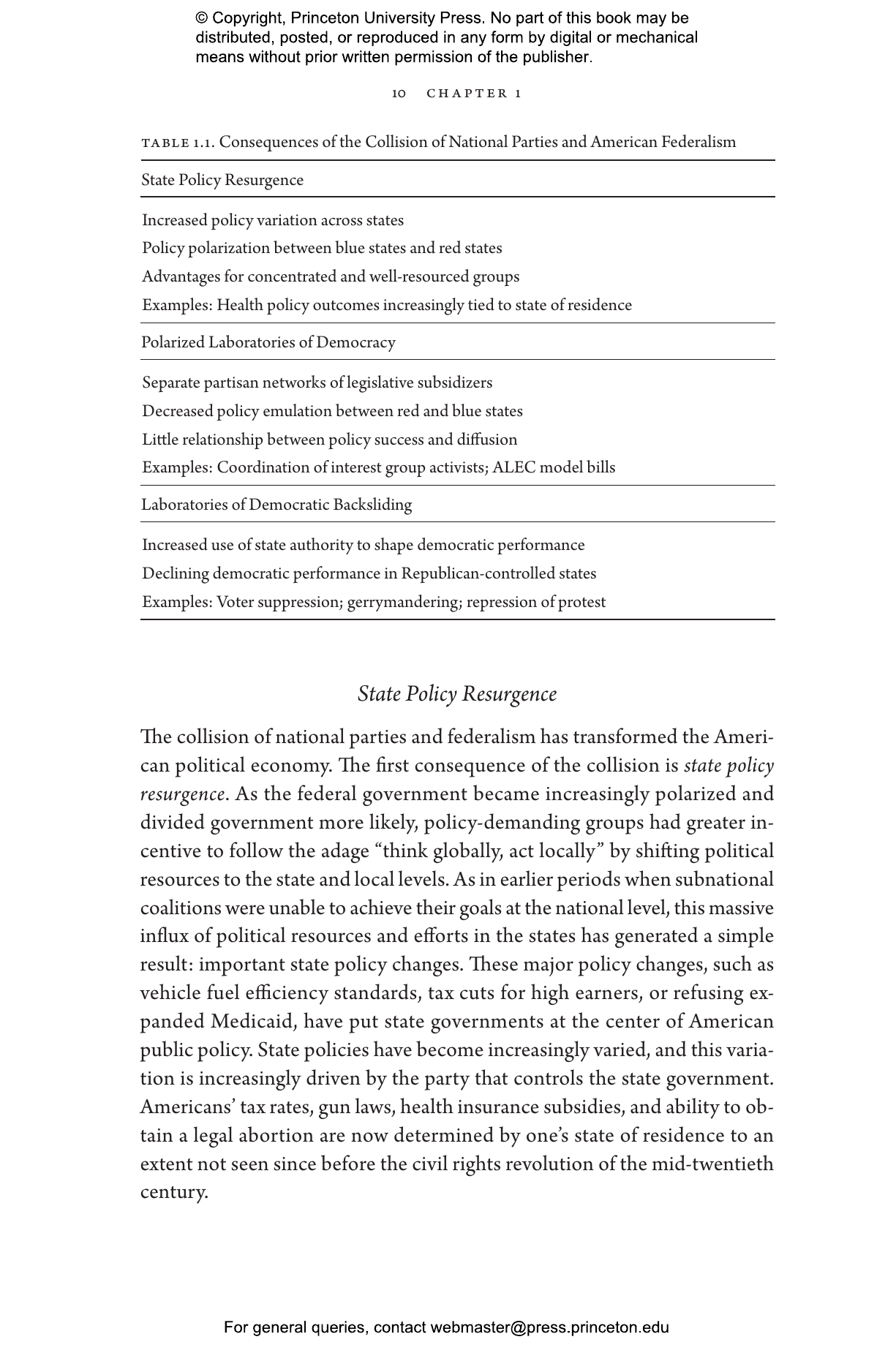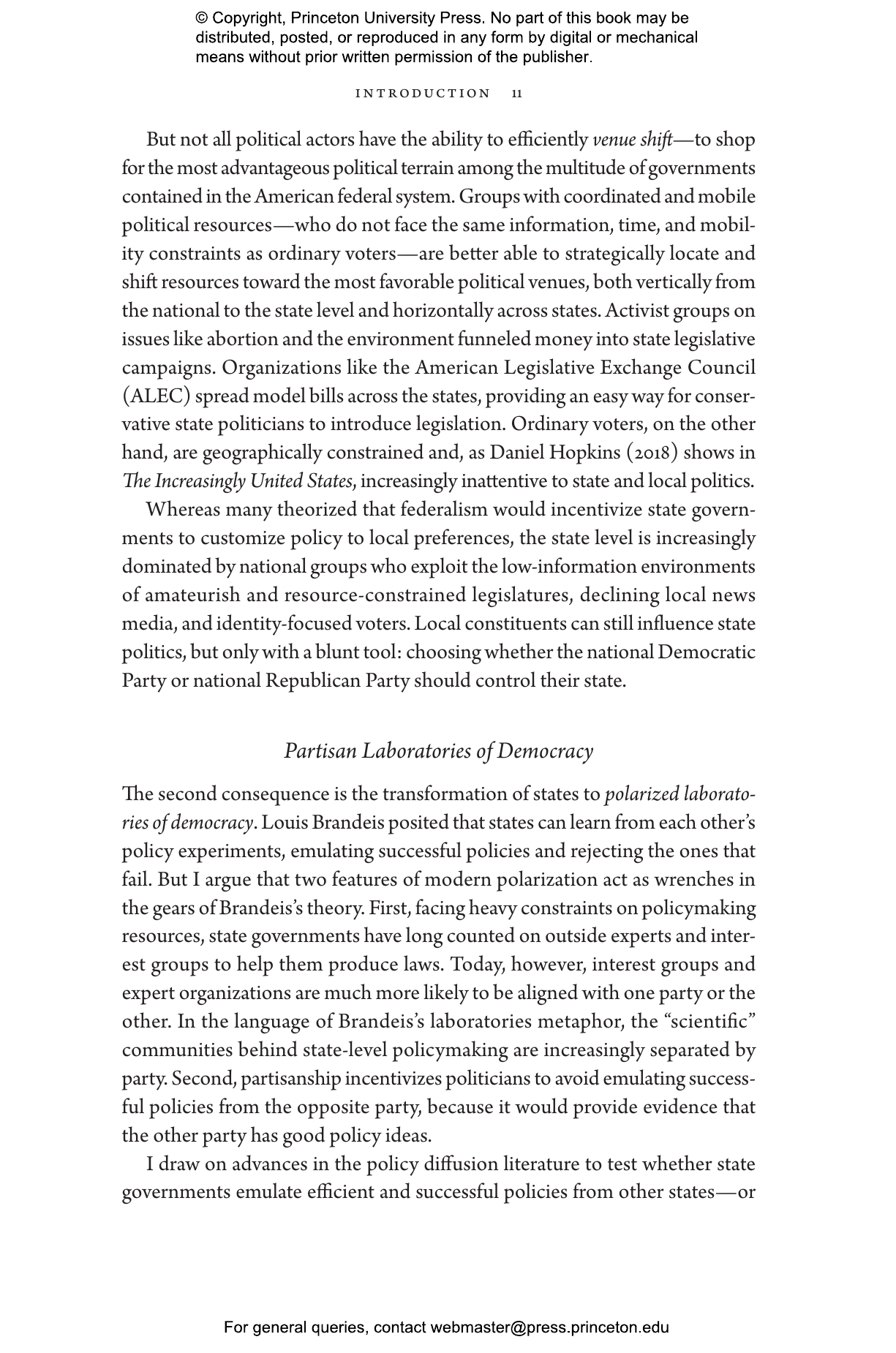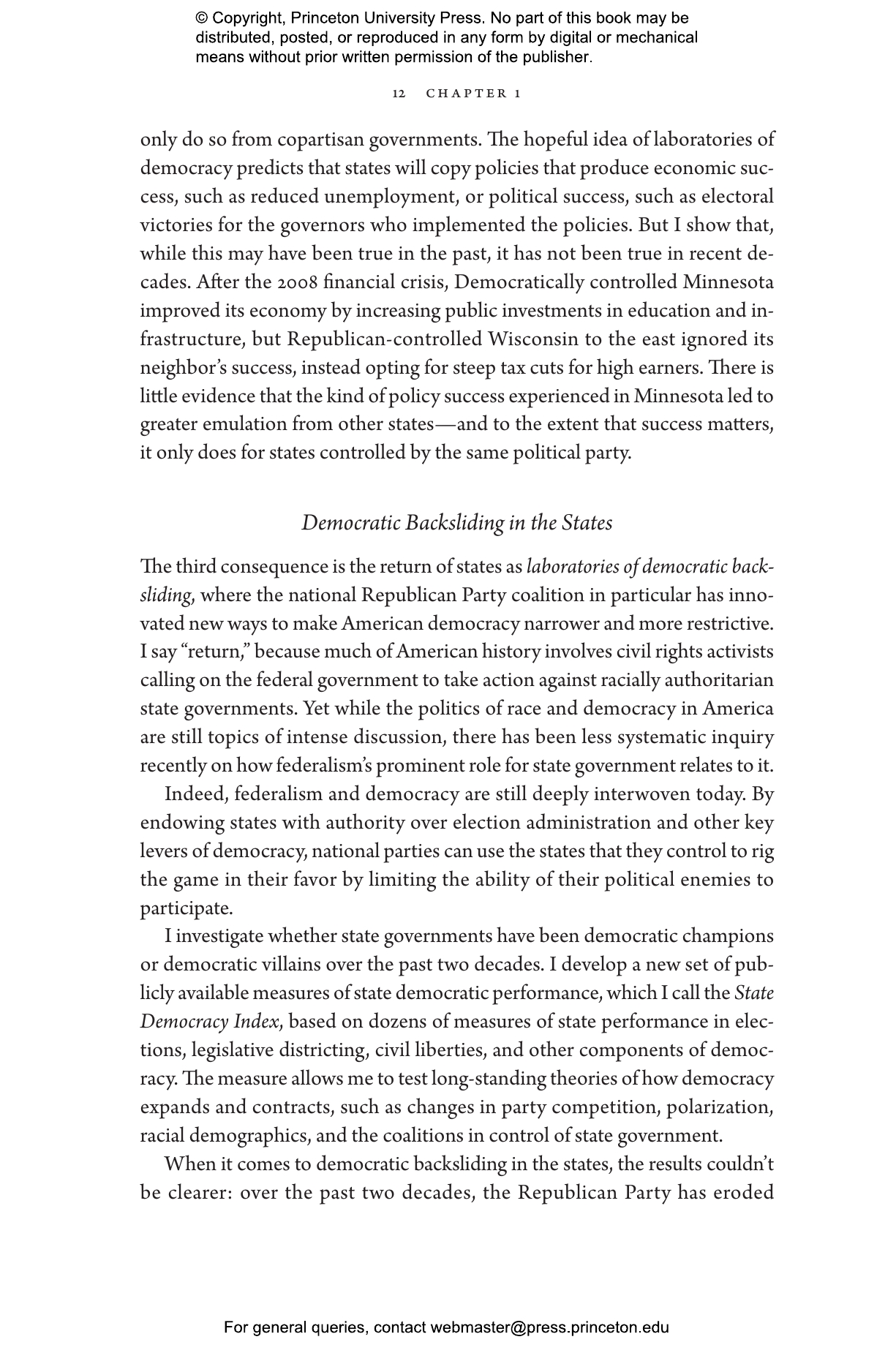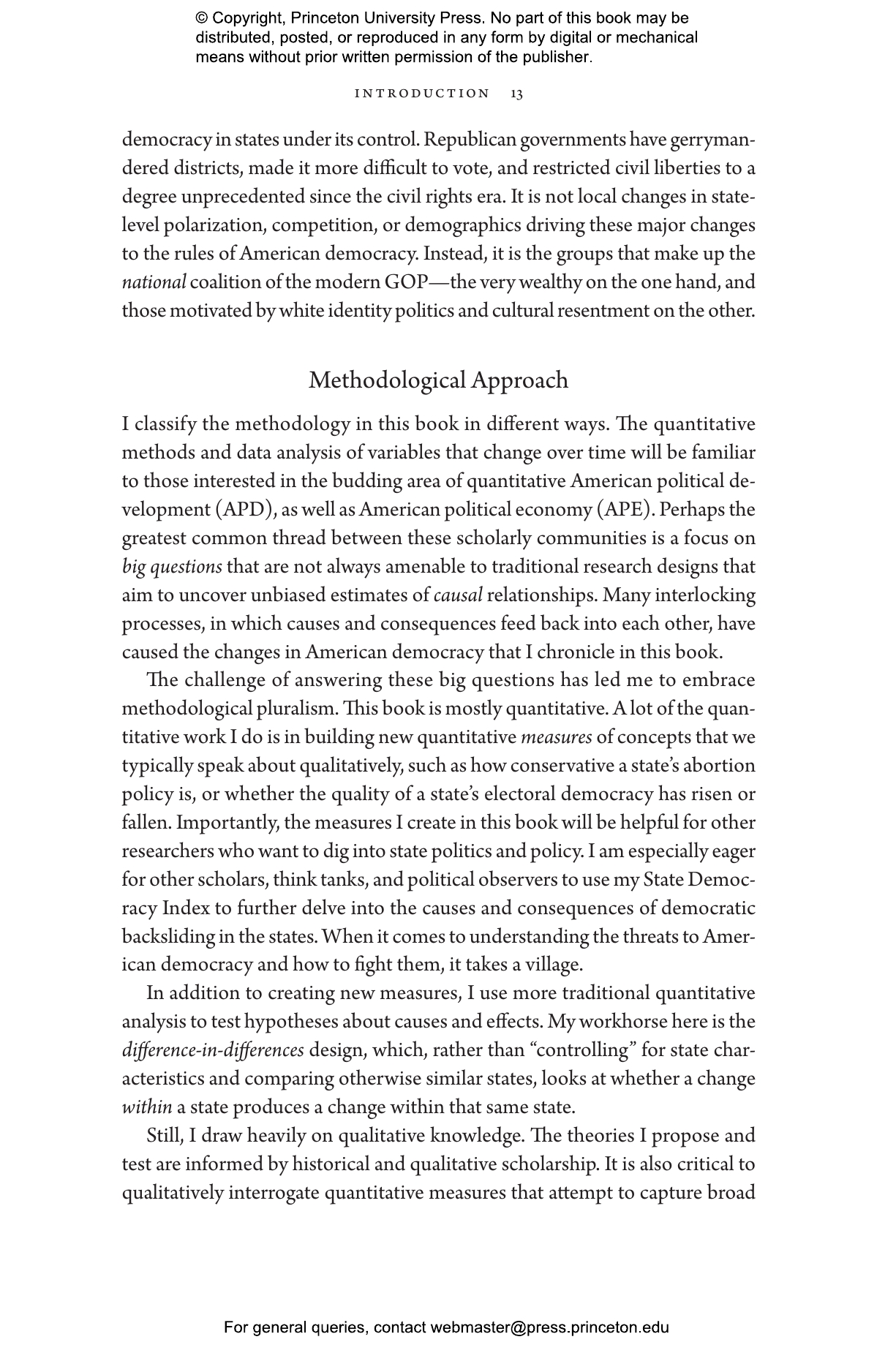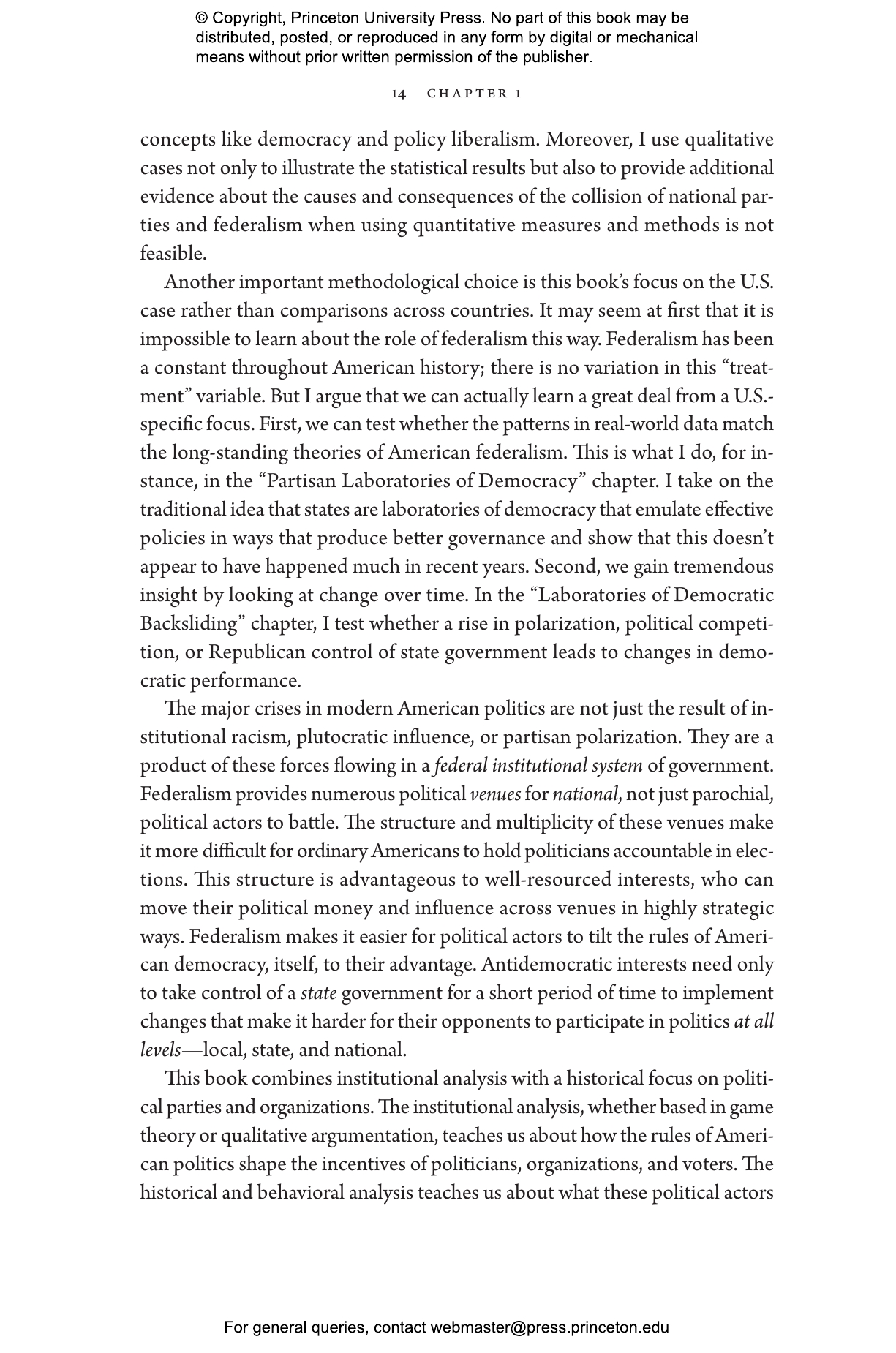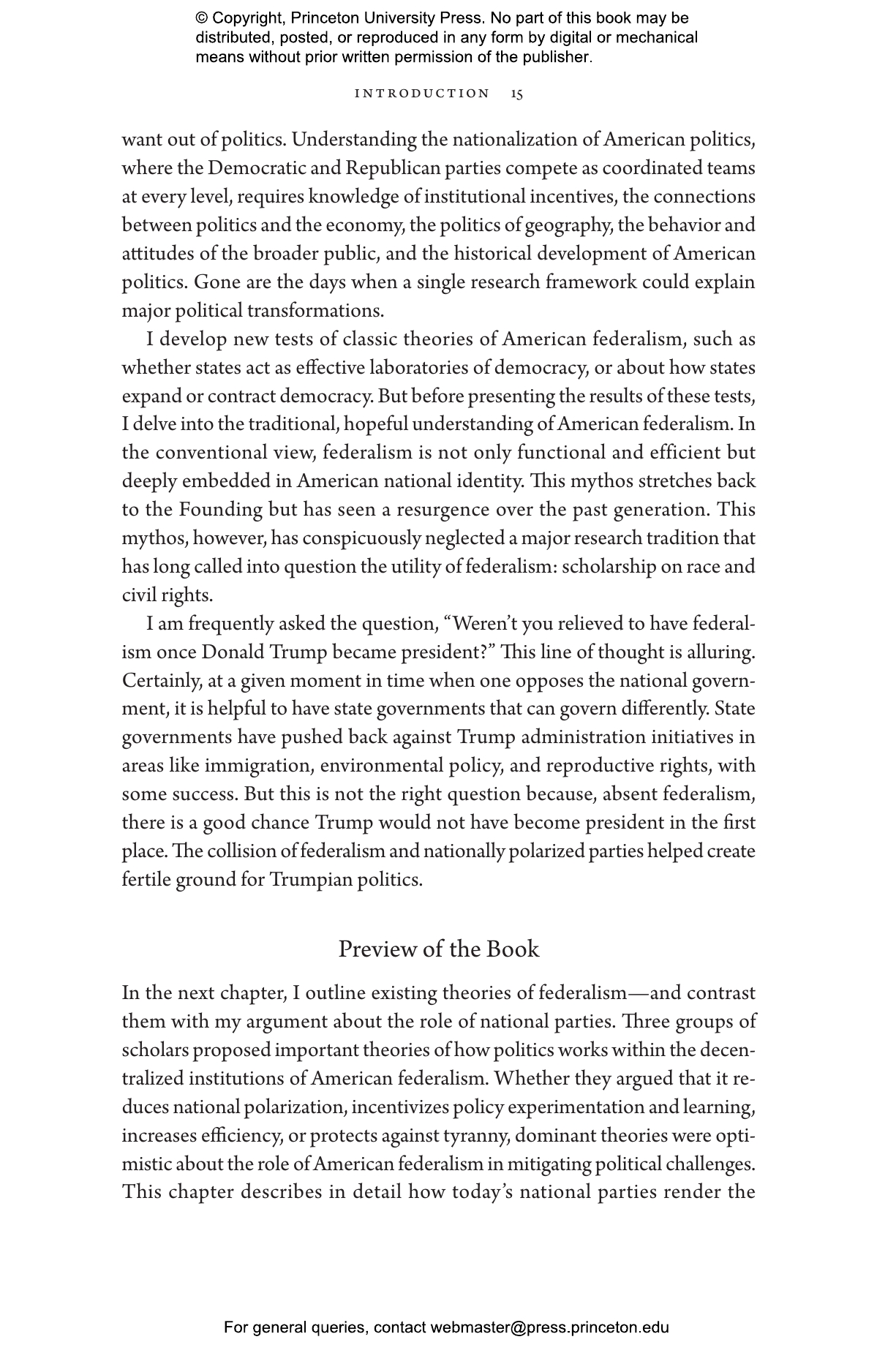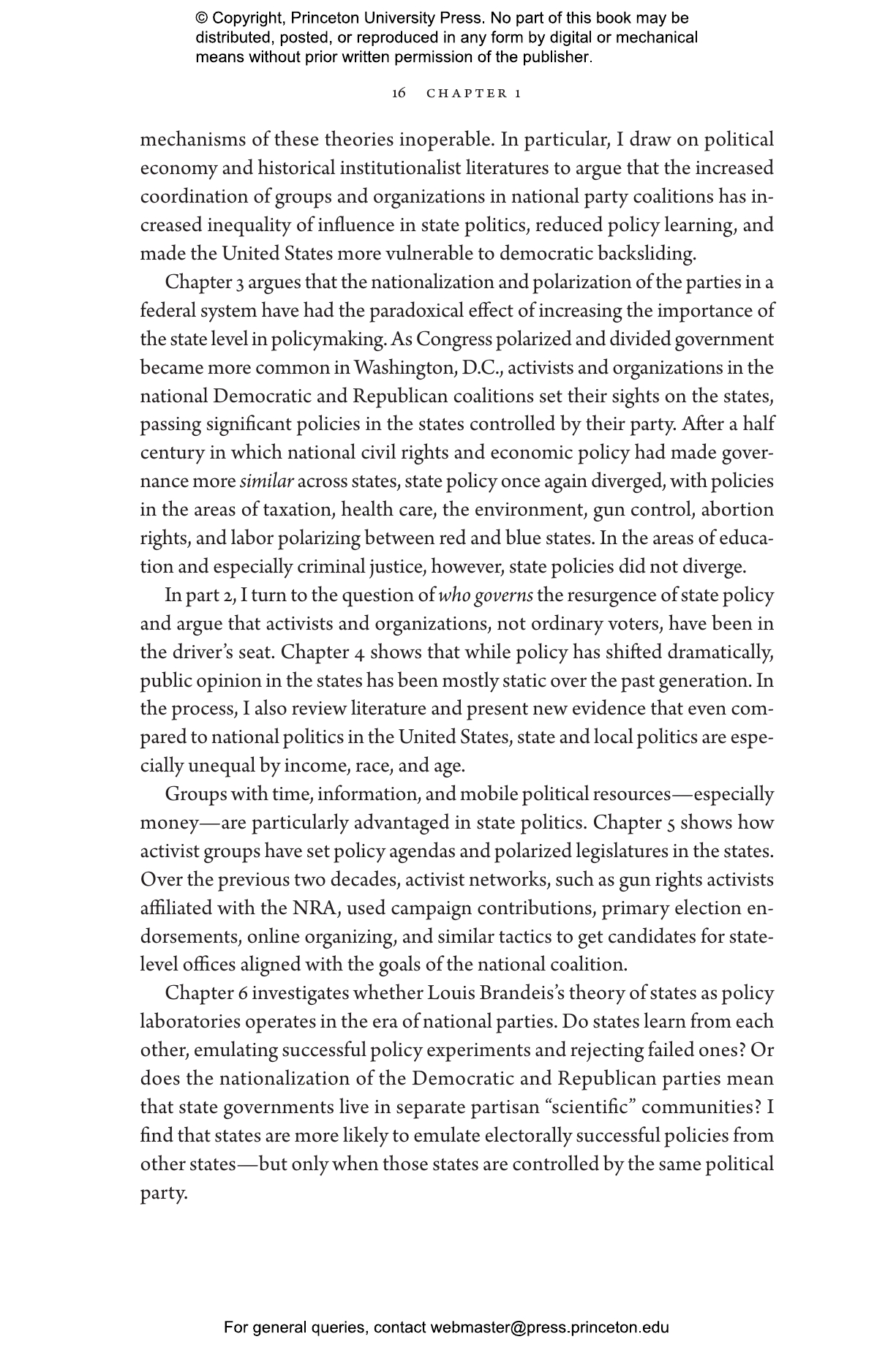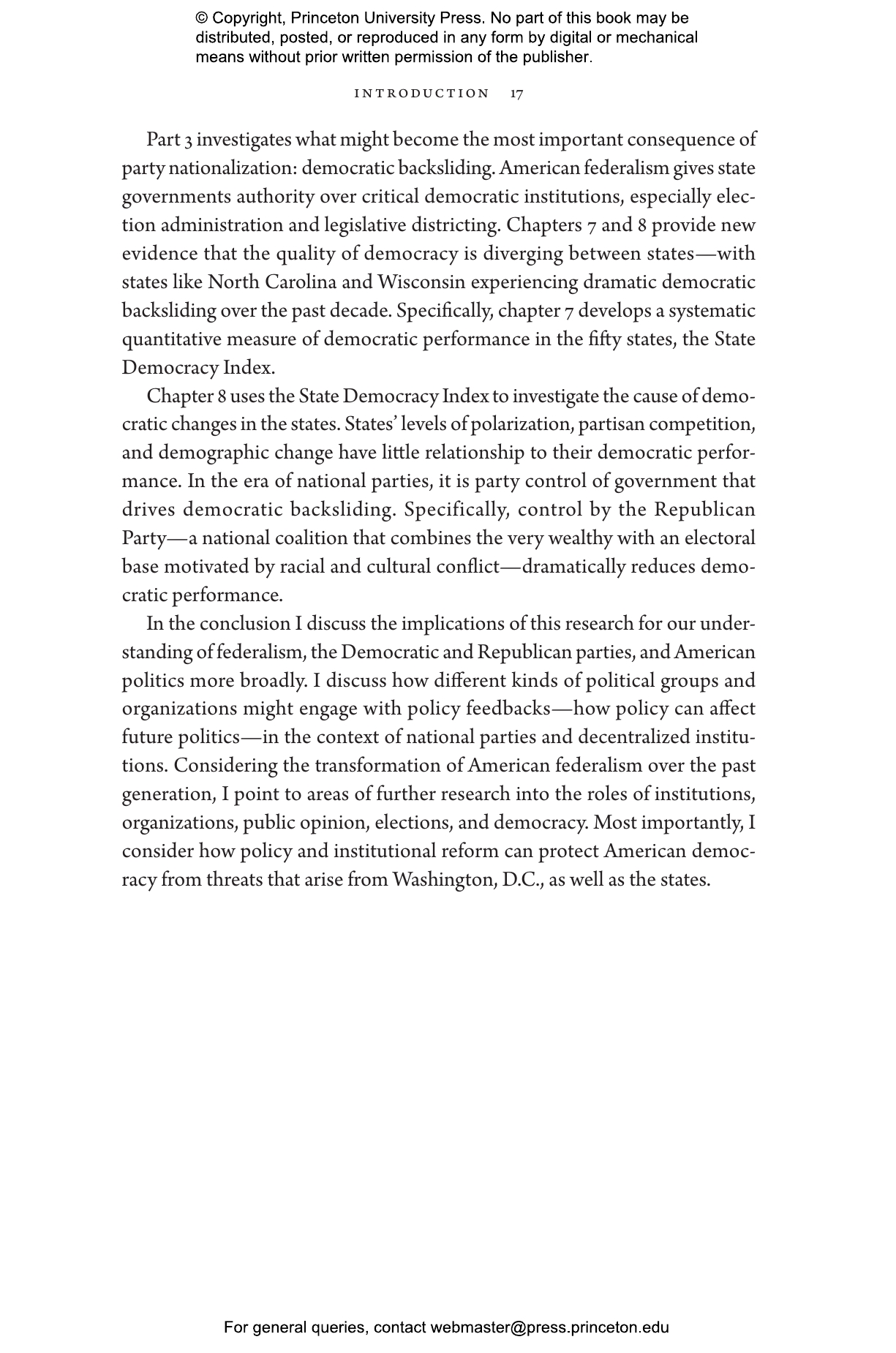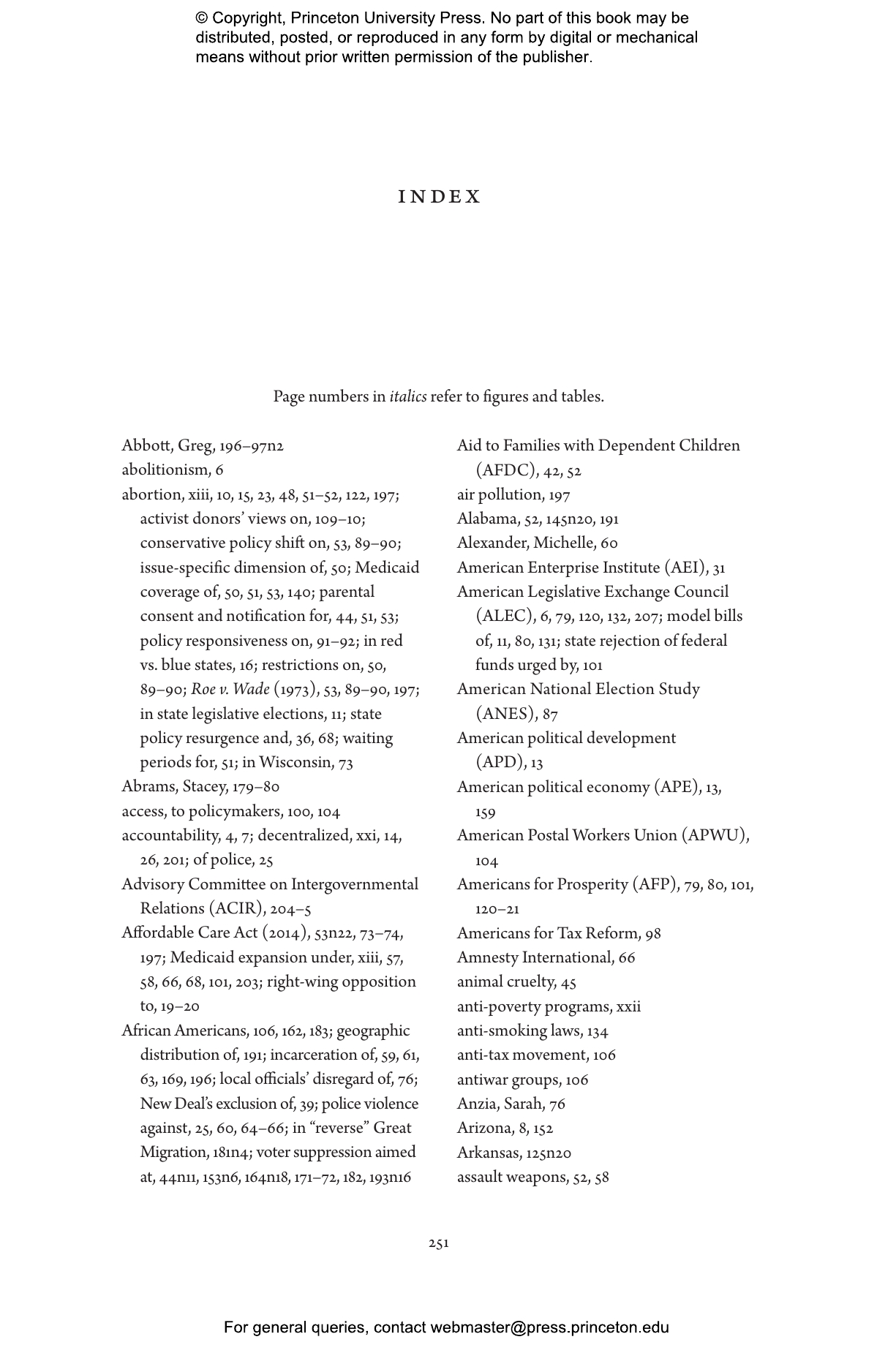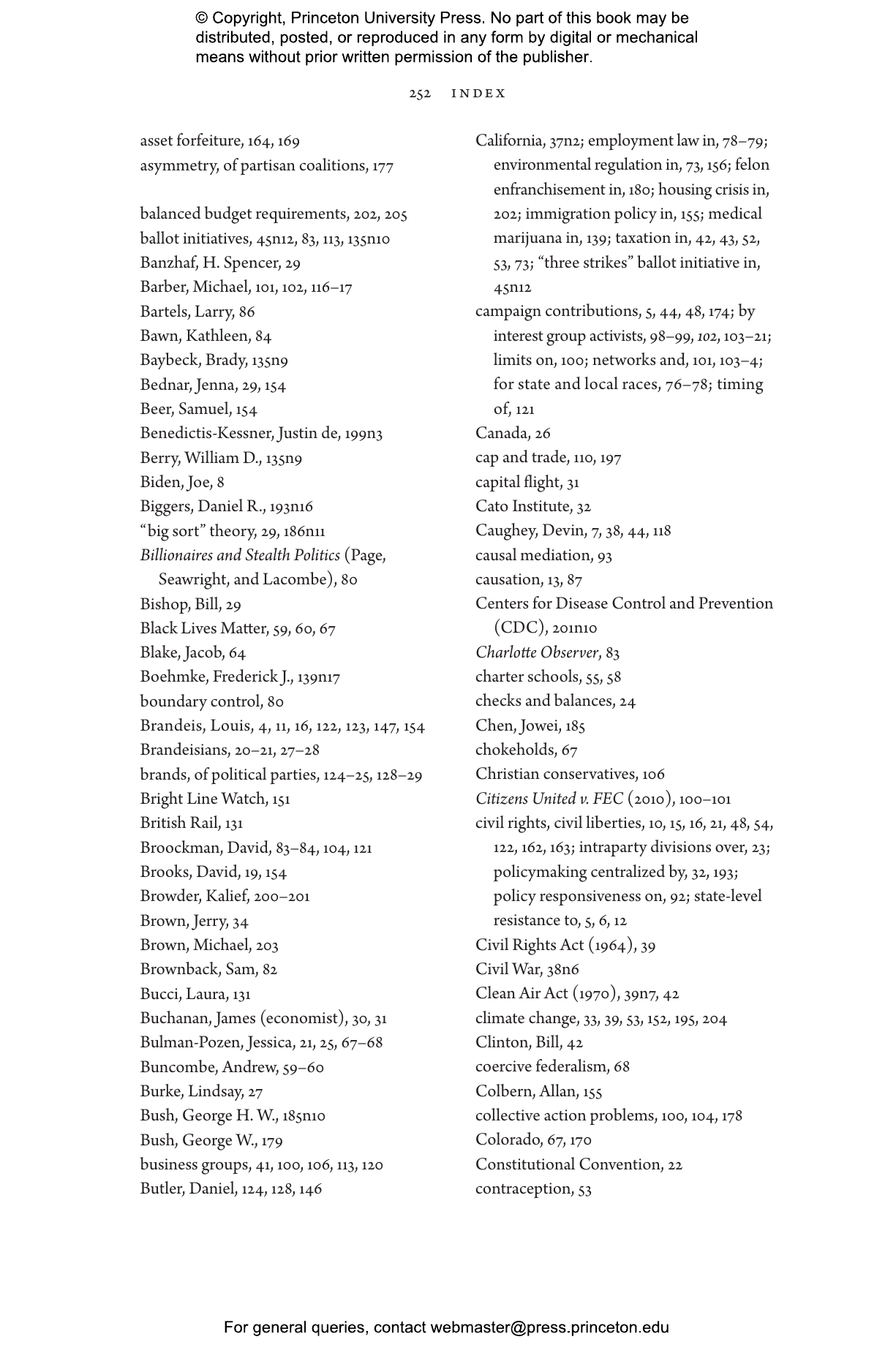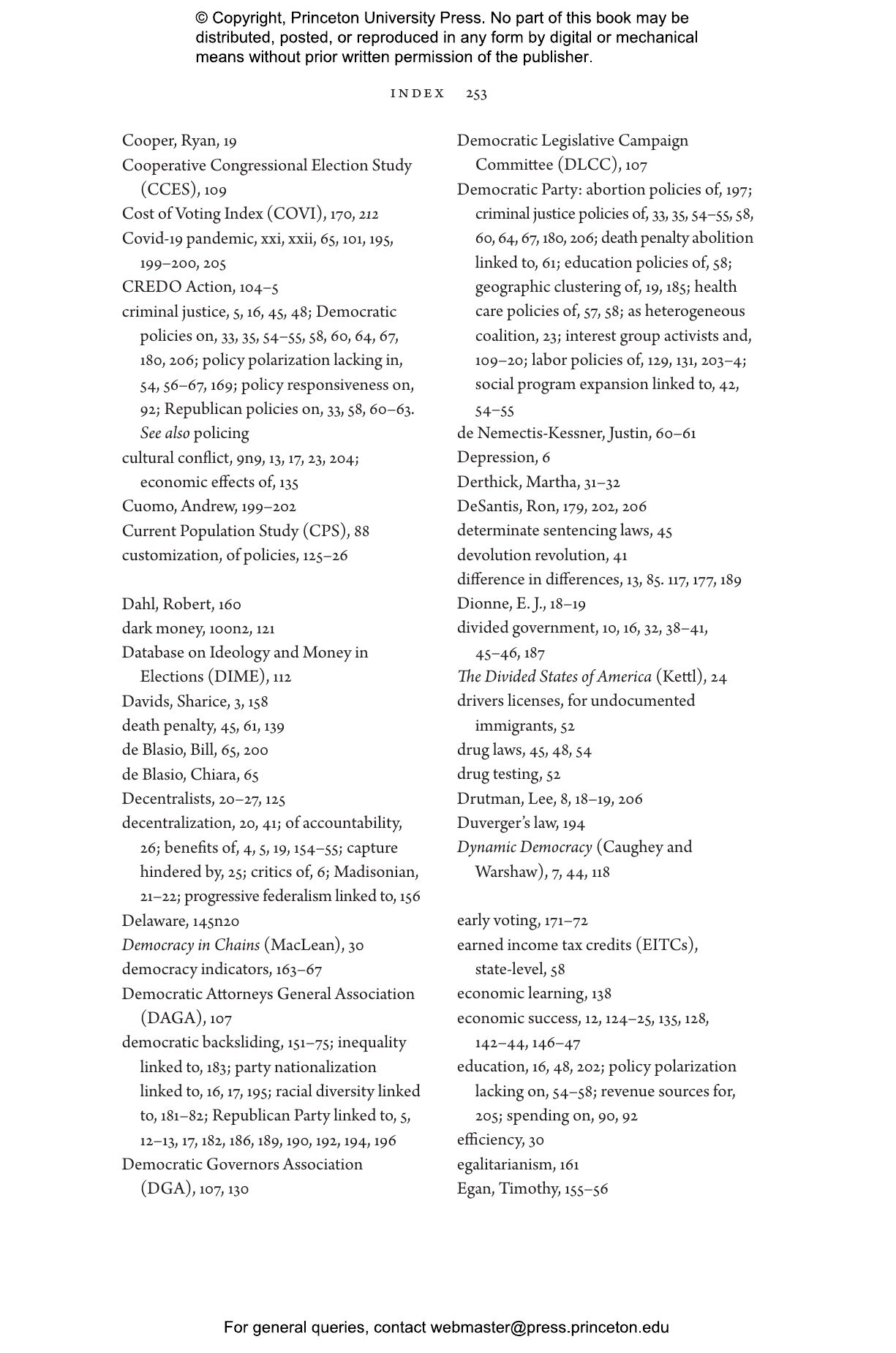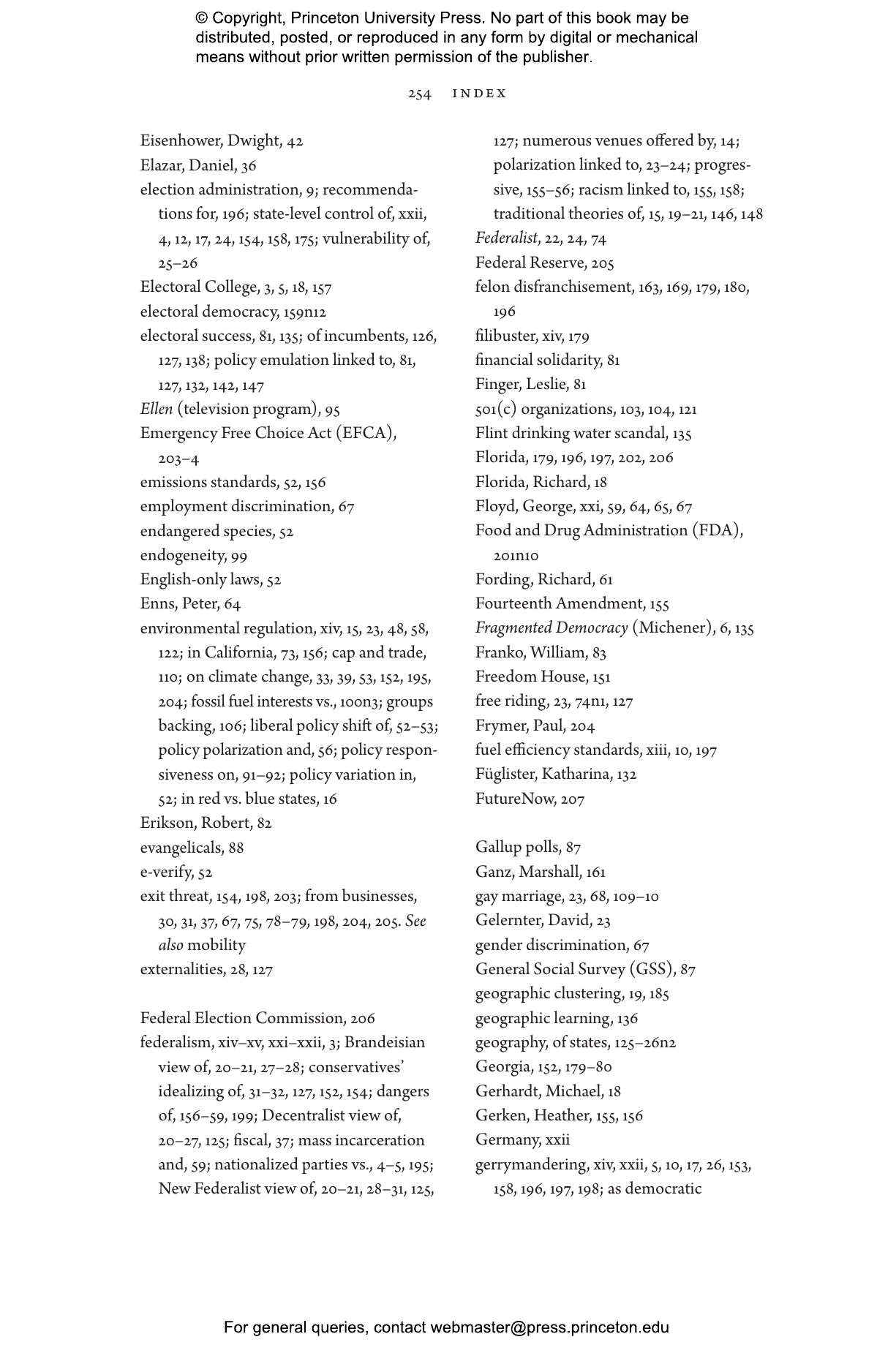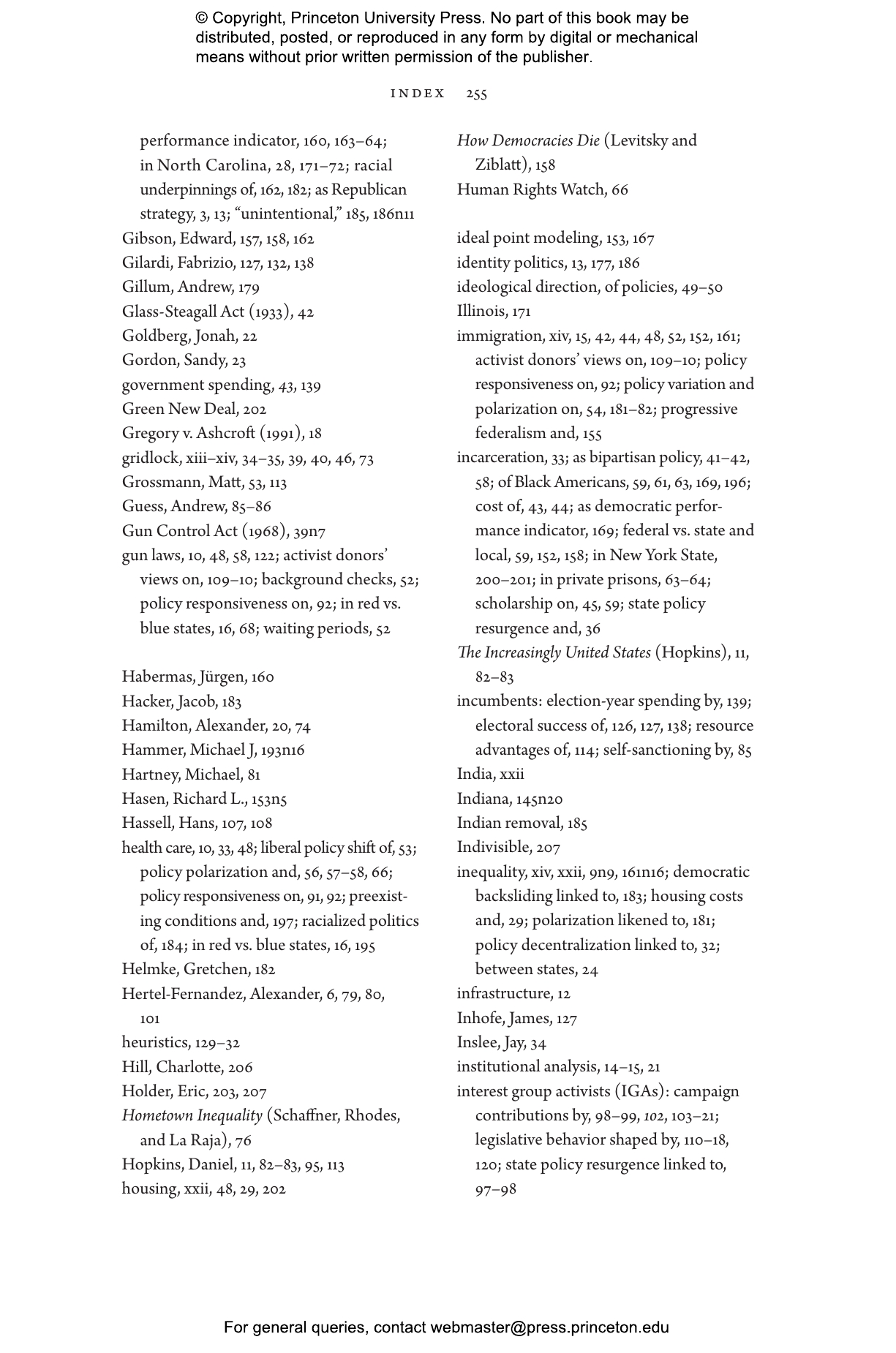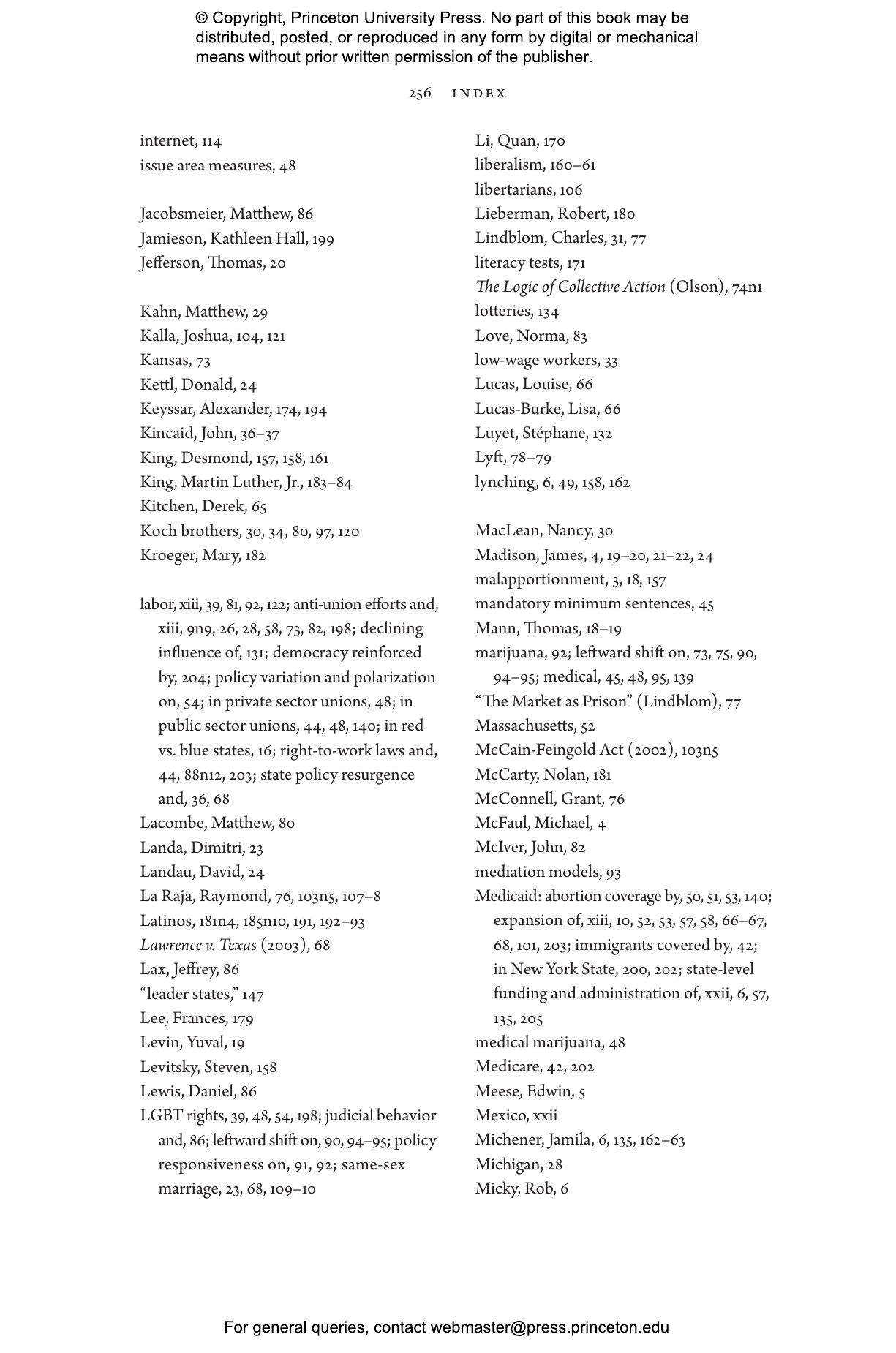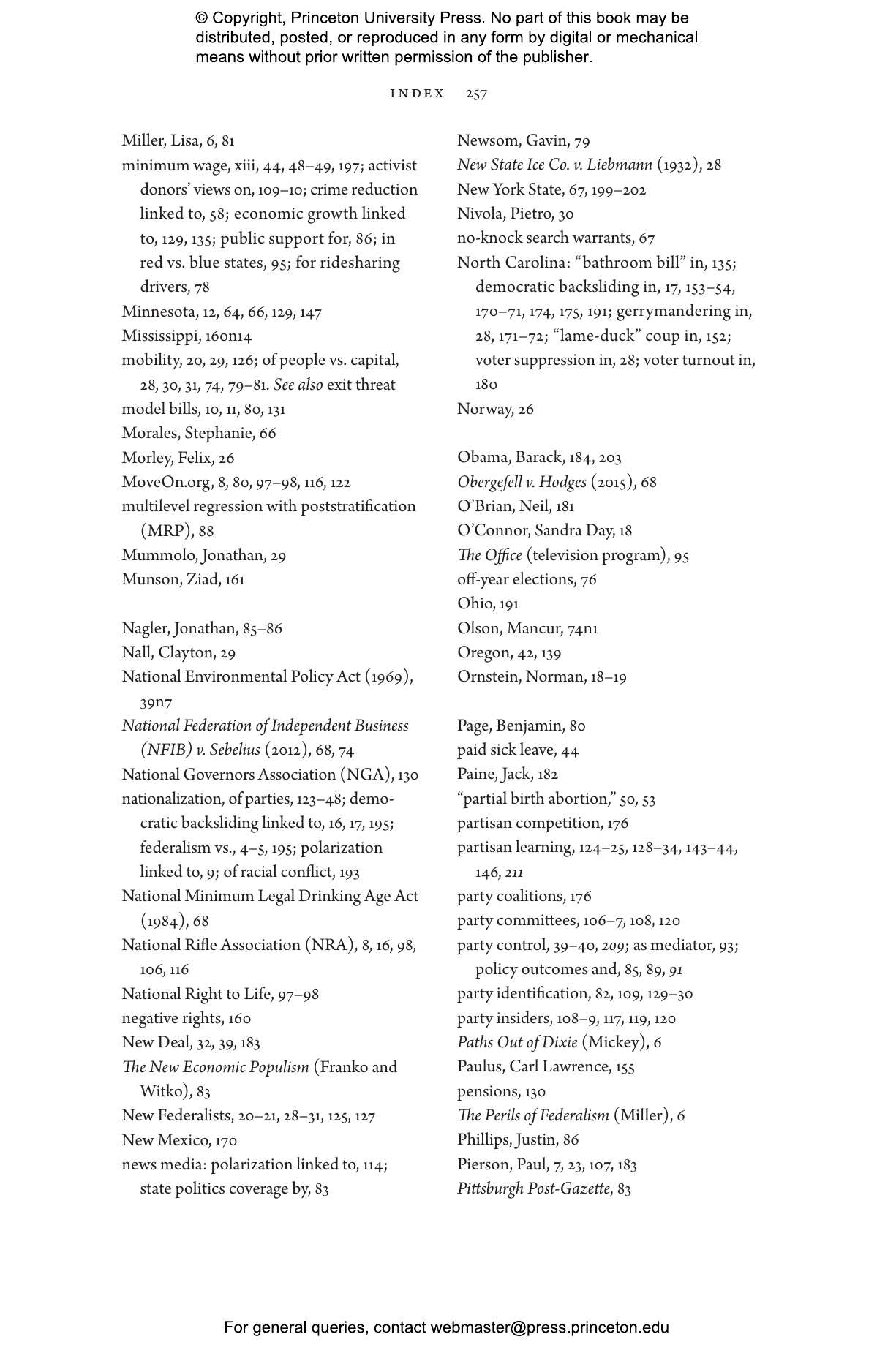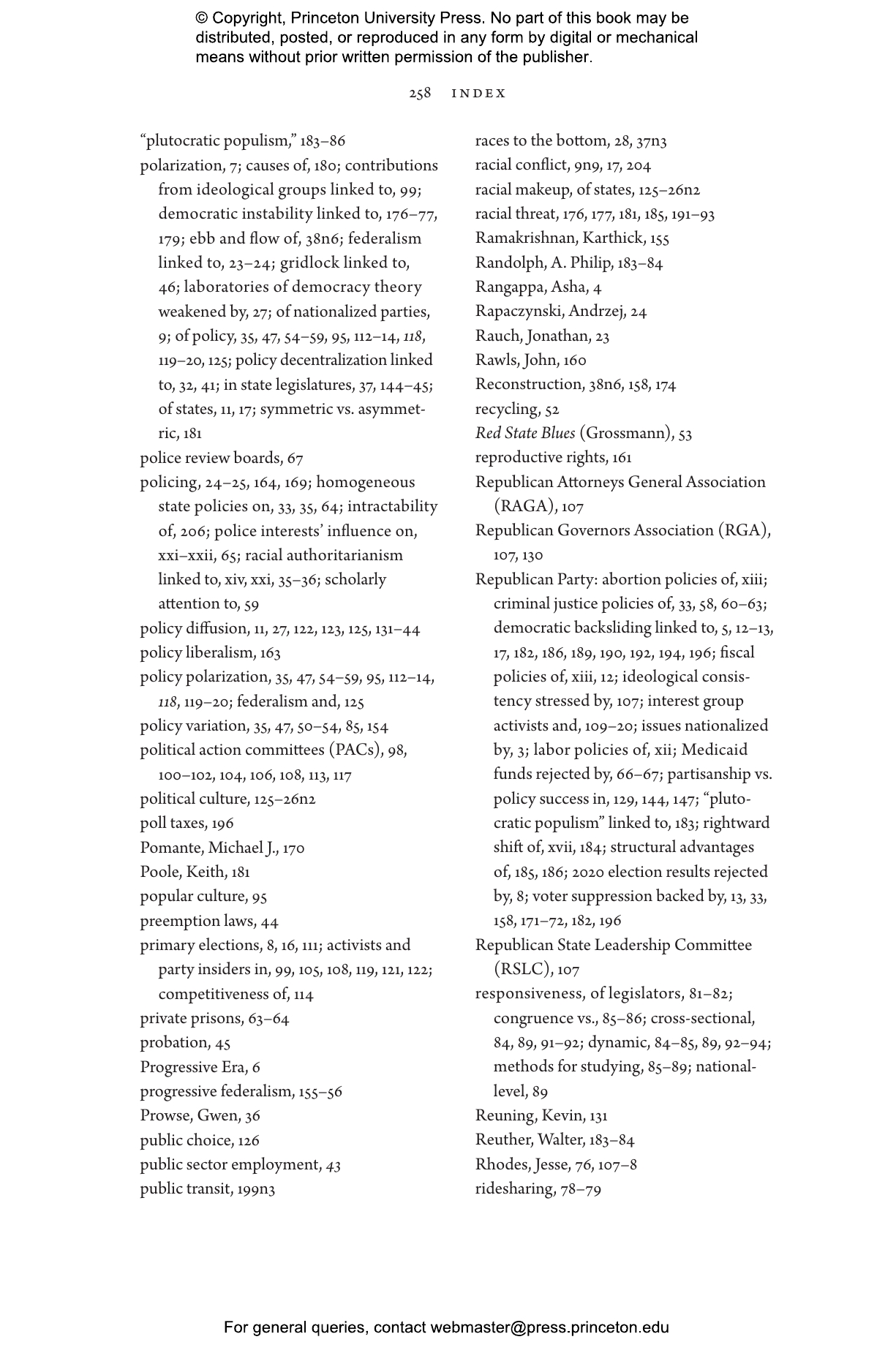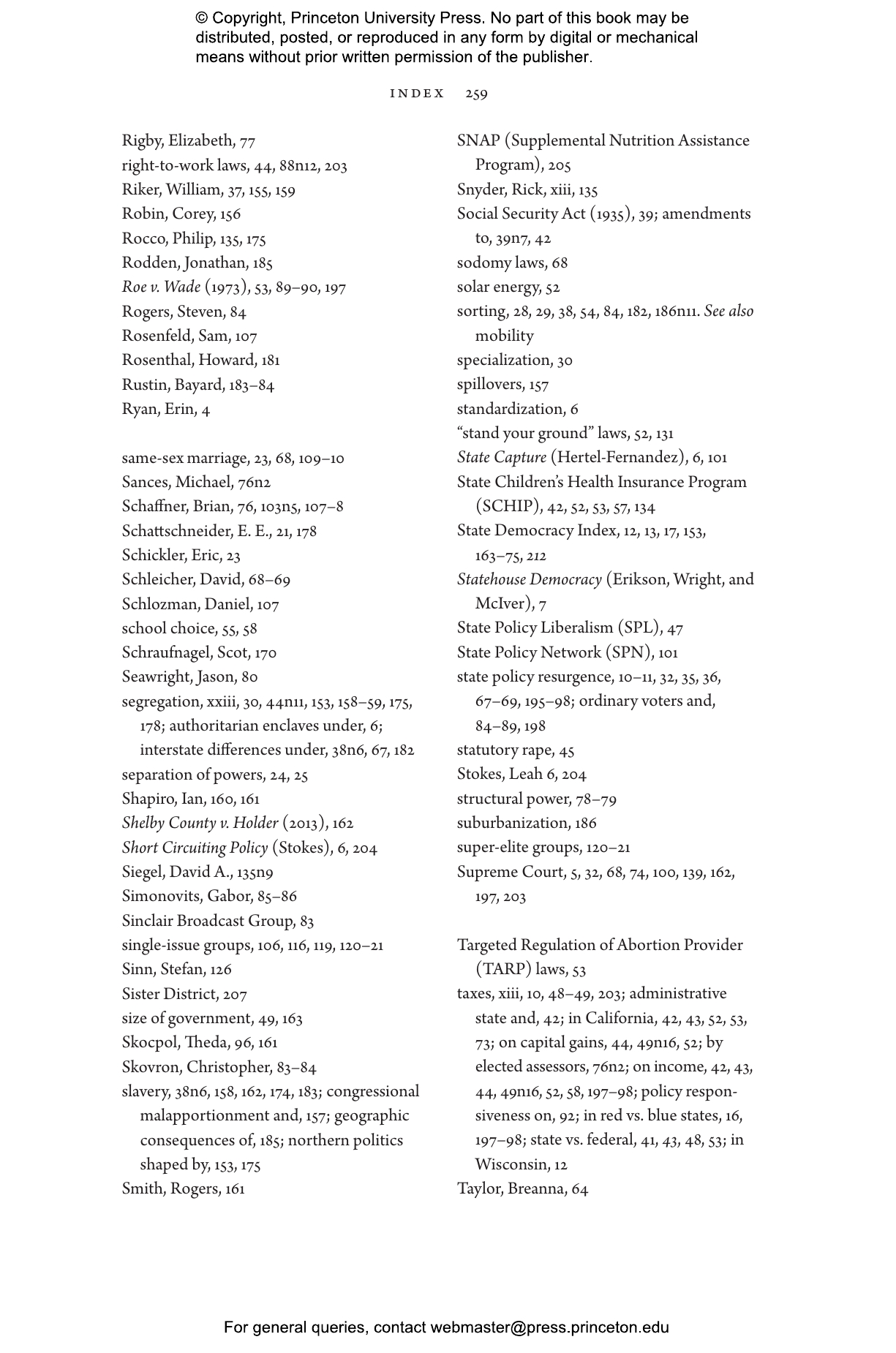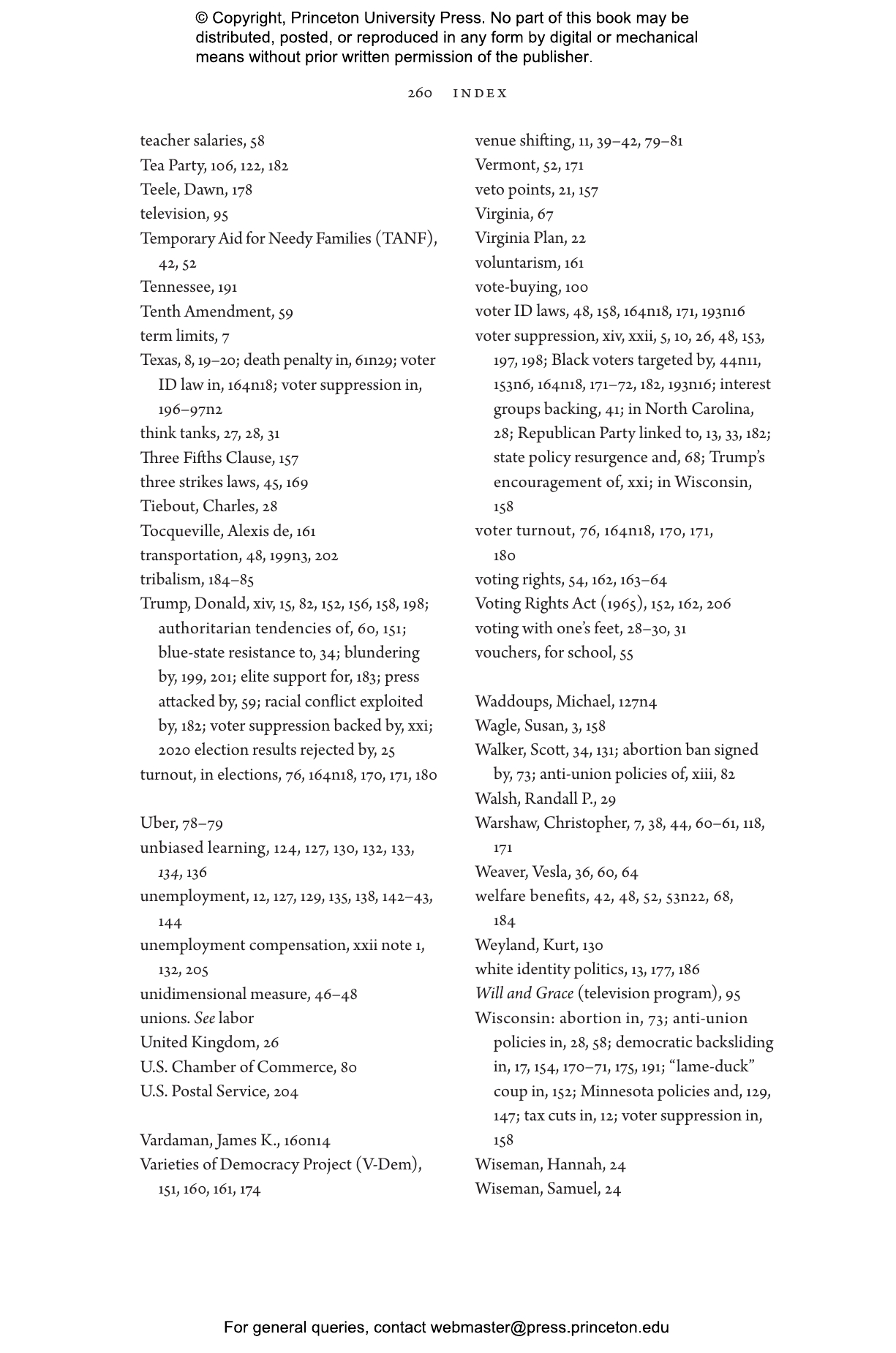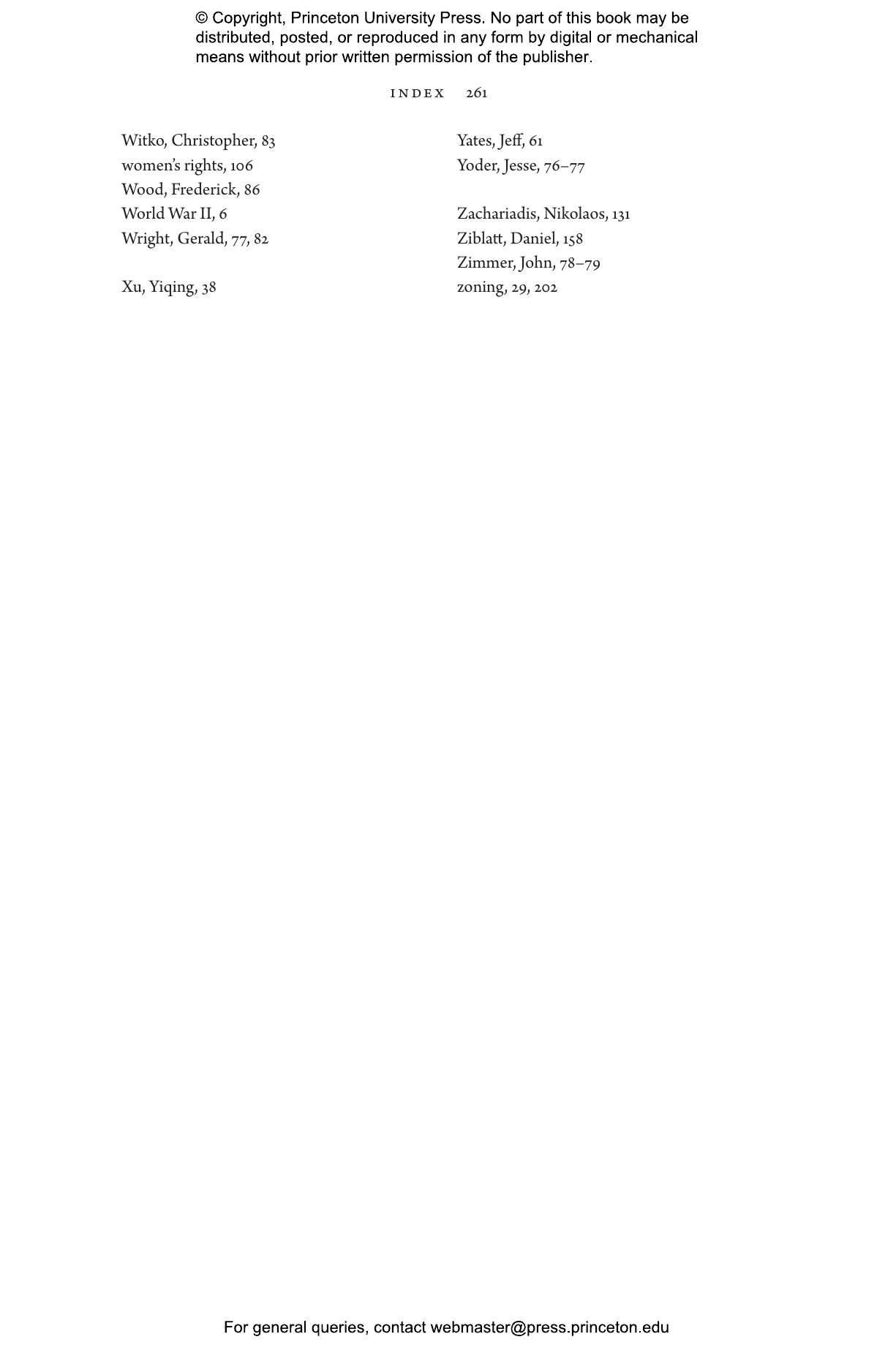Over the past generation, the Democratic and Republican parties have each become nationally coordinated political teams. American political institutions, on the other hand, remain highly decentralized. Laboratories against Democracy shows how national political conflicts are increasingly flowing through the subnational institutions of state politics—with profound consequences for public policy and American democracy.
Jacob Grumbach argues that as Congress has become more gridlocked, national partisan and activist groups have shifted their sights to the state level, nationalizing state politics in the process and transforming state governments into the engines of American policymaking. He shows how this has had the ironic consequence of making policy more varied across the states as red and blue party coalitions implement increasingly distinct agendas in areas like health care, reproductive rights, and climate change. The consequences don’t stop there, however. Drawing on a wealth of new data on state policy, public opinion, money in politics, and democratic performance, Grumbach traces how national groups are using state governmental authority to suppress the vote, gerrymander districts, and erode the very foundations of democracy itself.
Required reading for this precarious moment in our politics, Laboratories against Democracy reveals how the pursuit of national partisan agendas at the state level has intensified the challenges facing American democracy, and asks whether today’s state governments are mitigating the political crises of our time—or accelerating them.
Awards and Recognition
- A New Yorker Best Book of the Year
- Winner of the Merze Tate – Elinor Ostrom Outstanding Book Award, American Political Science Association
Jacob M. Grumbach is associate professor of political science at the University of Washington.
"[A] landmark book."—Nancy MacLean, New Republic
"Brilliant. . . . Grumbach offers both a thoughtful examination of US federalism’s inherent perils and limits and a searching interpretation of how they are compounded in our current political climate."—Colin Gordon, Jacobin
"[Jacob Grumbach] contends in this lucid analysis that the nationalization of America’s major political parties threatens democracy. . . . Grumbach’s claims are persuasive and timely. This is a pinpoint diagnosis of a troubling political trend."—Publishers Weekly
"The most persuasive and sweeping criticism of federalism yet."—Timothy Callaghan, Publius
"Grumbach is a bit of a unicorn: deeply committed to the highest standards of theoretical and empirical rigor, strikingly uninterested in upholding the façade of academic objectivity."—Jamila Michener, Democracy
“In this bold and compelling book, Grumbach dismantles the widespread assumption that state governments provide a bulwark against the overreaches of the national political establishment. Laboratories against Democracy is a must-read for anyone interested in understanding this fraught political moment.”—Megan Ming Francis, author of Civil Rights and the Making of the Modern American State
“Grumbach powerfully illuminates how our political system has become dominated by polarized parties, wealthy donors, corporate influence, and an array of ideological tactics that have effectively turned state governments into mere conduits of the current national divide. A book for the moment.”—Paul Frymer, author of Building an American Empire: The Era of Territorial and Political Expansion
“Grumbach brilliantly explains why states have transformed from political backwaters into major policymakers—and, increasingly, sites of democratic backsliding. By situating them within America’s polarized national politics, Laboratories against Democracy redefines the study of state politics.”—Jacob S. Hacker, Yale University
“Compellingly argued, theoretically rich, and painfully urgent. Laboratories against Democracy is required reading for anyone who wants to think seriously about the democratic repercussions of federalism in the United States.”—Jamila Michener, author of Fragmented Democracy: Medicaid, Federalism, and Unequal Politics
